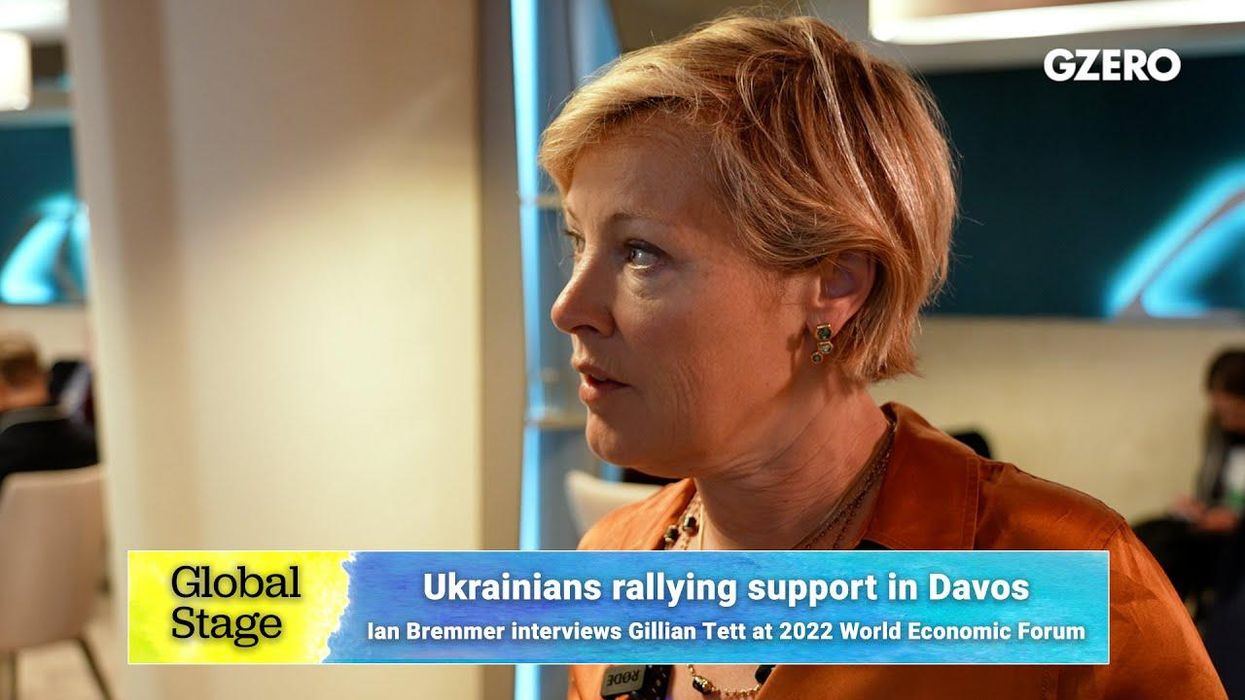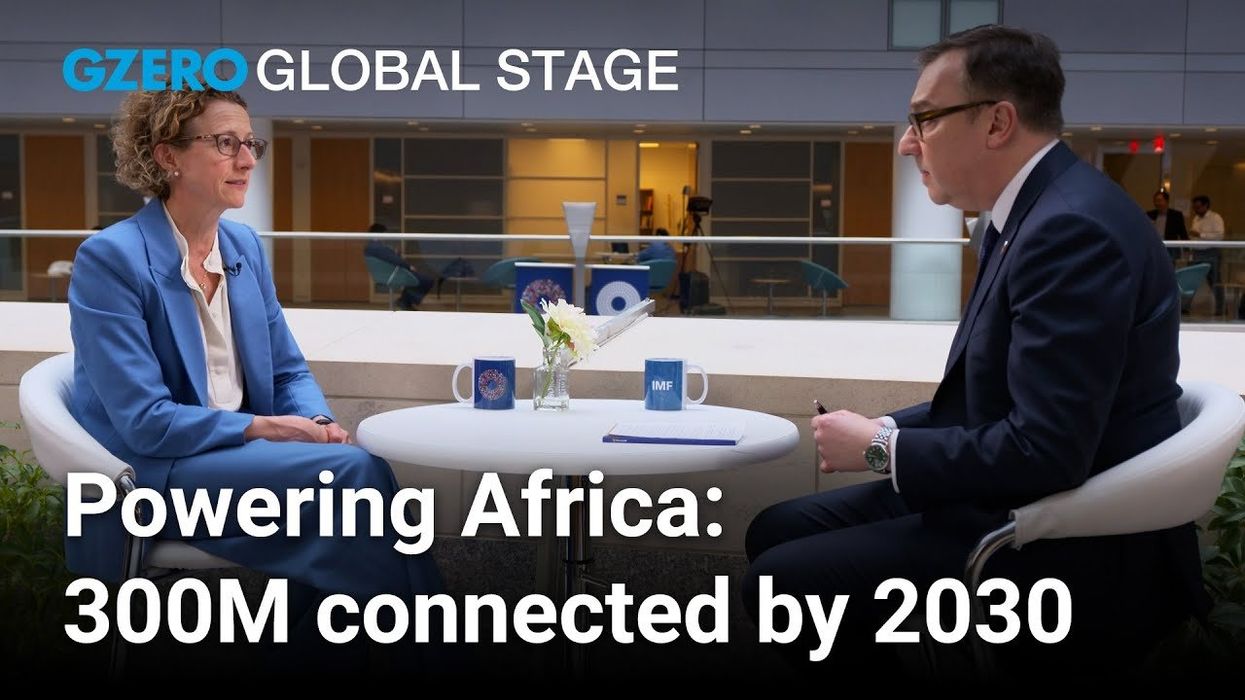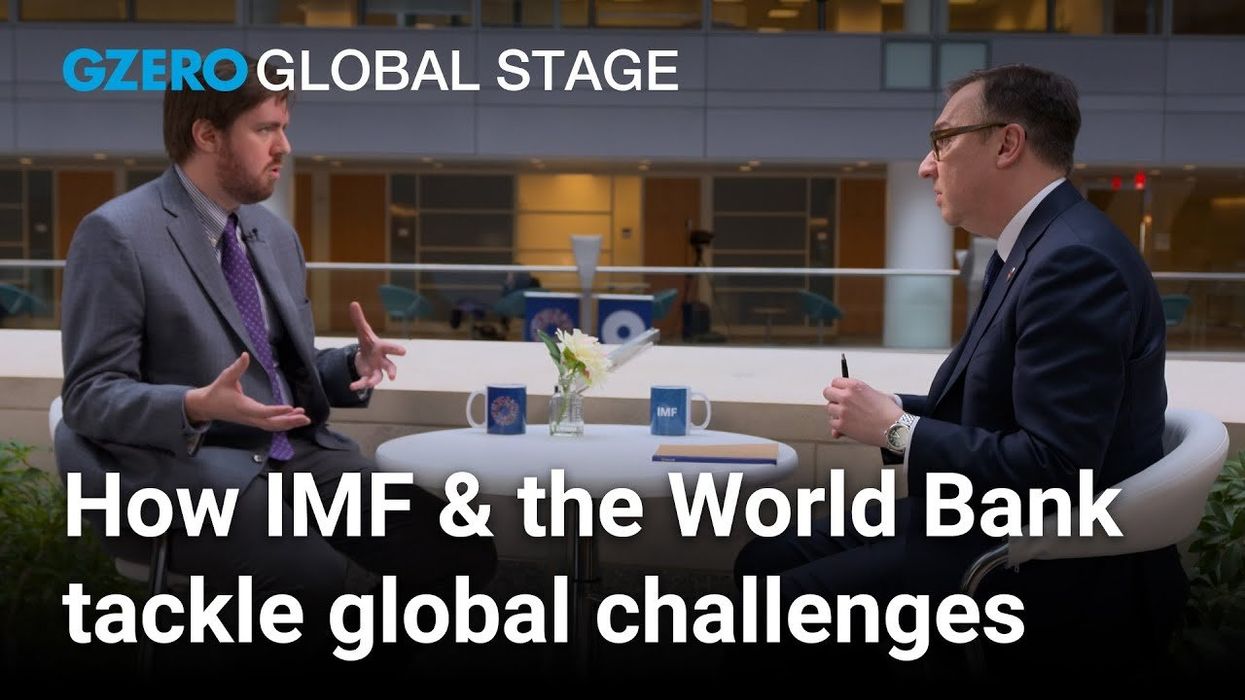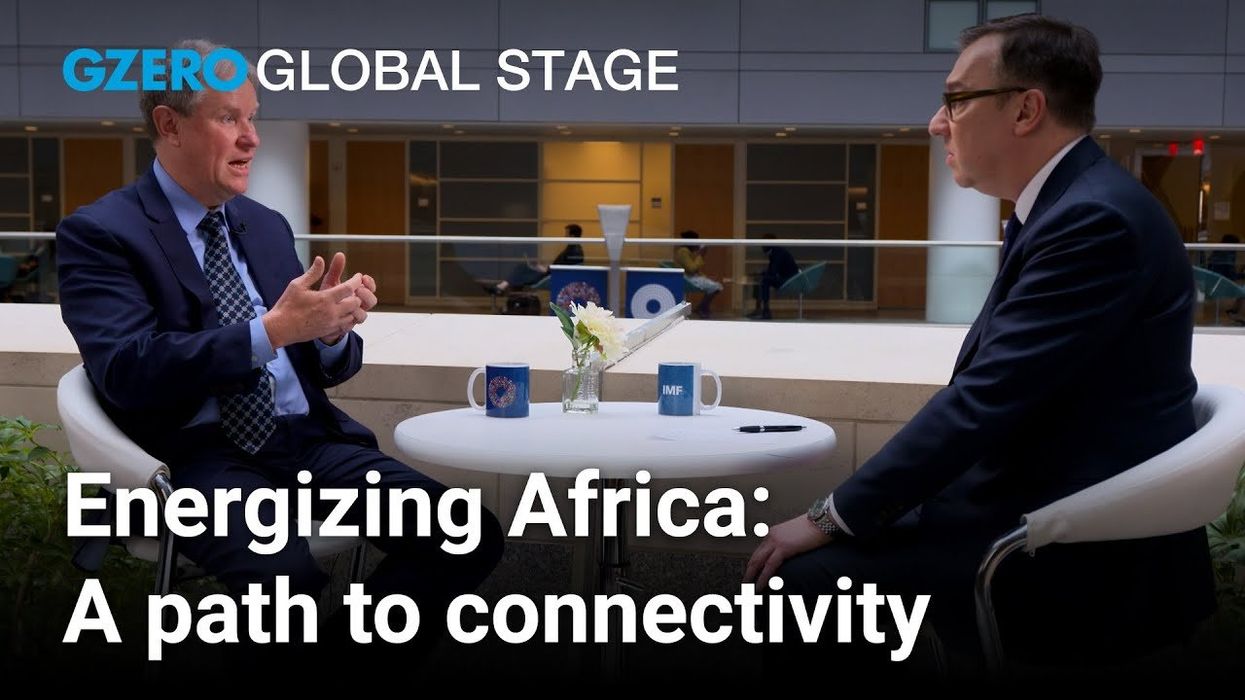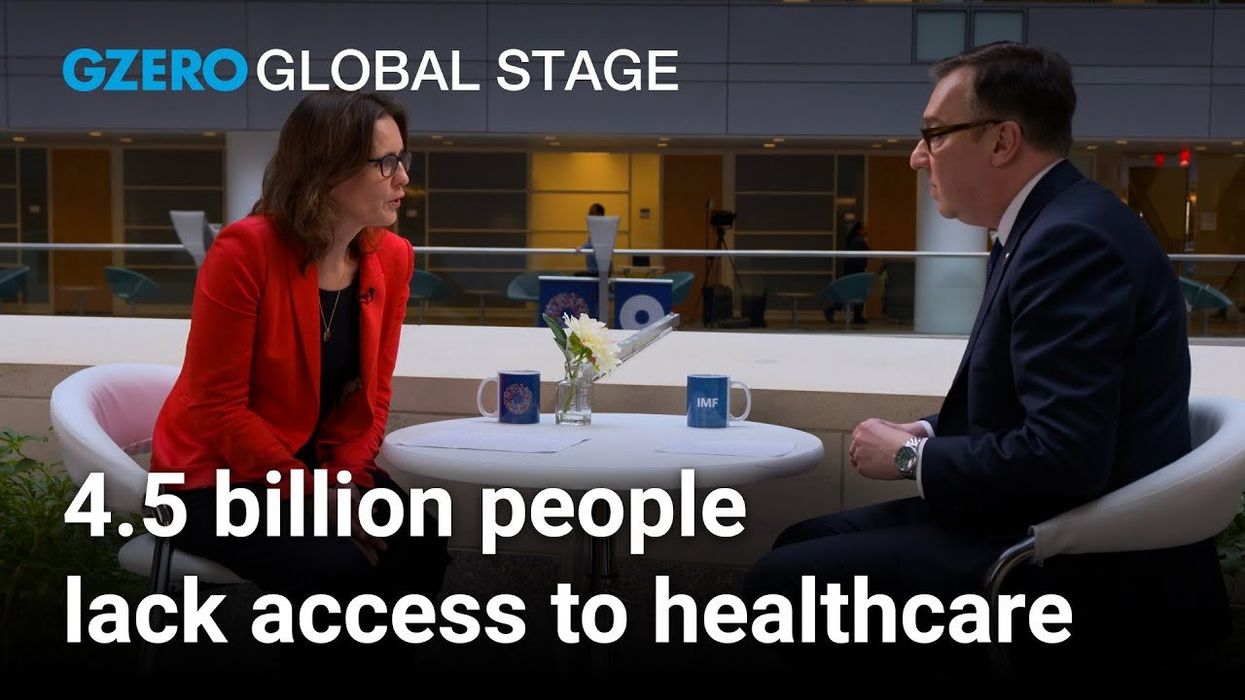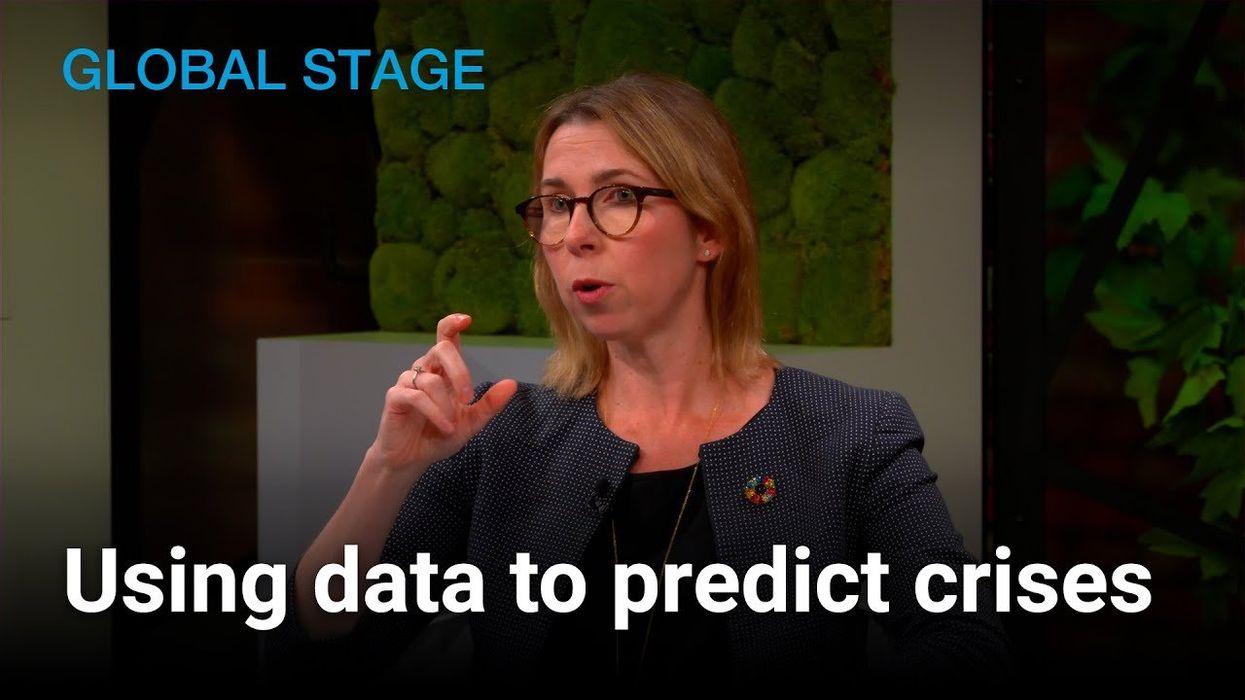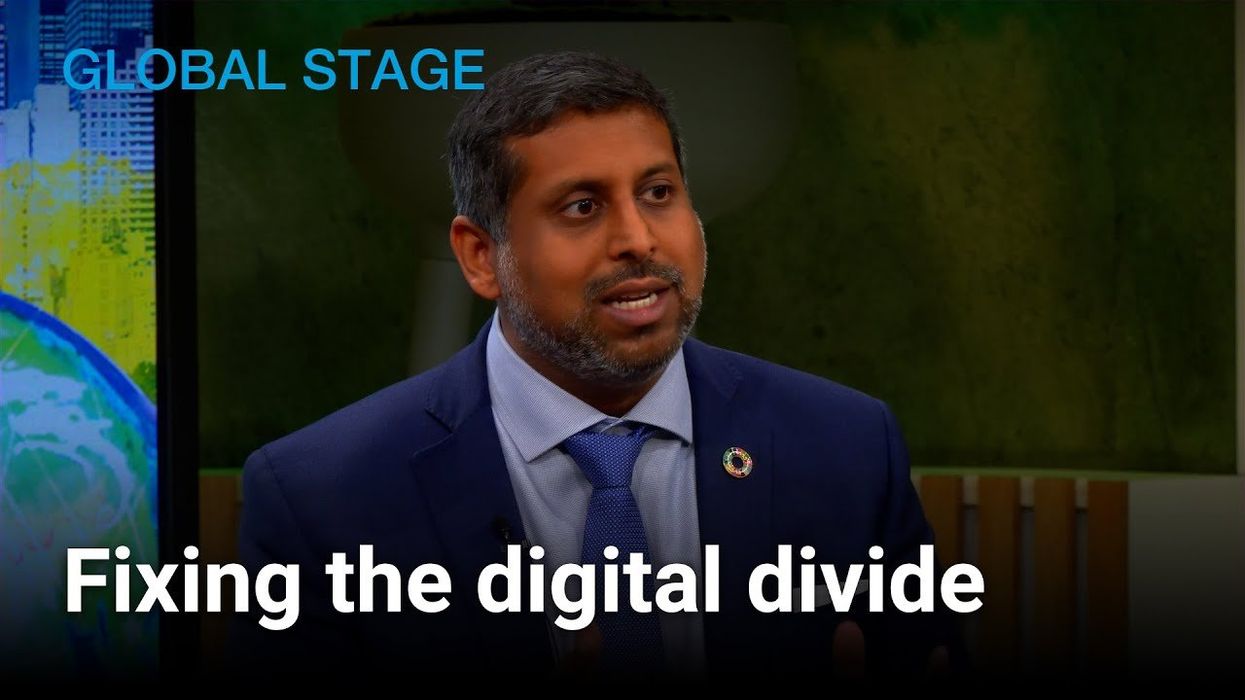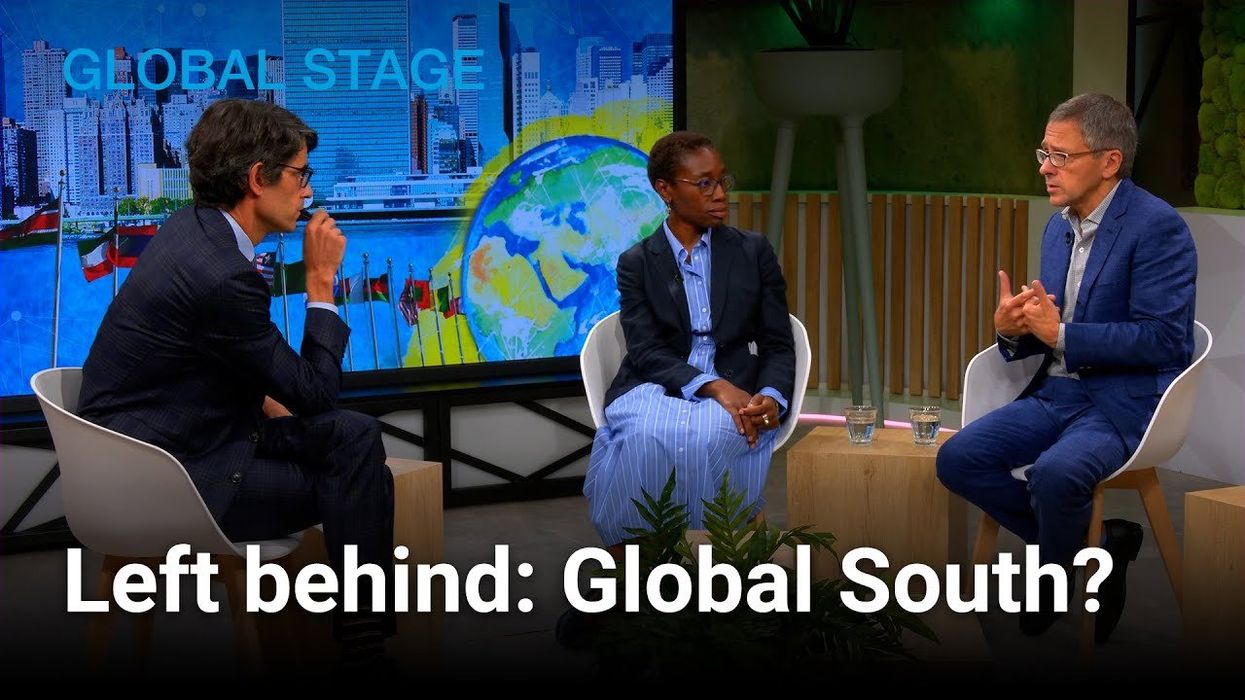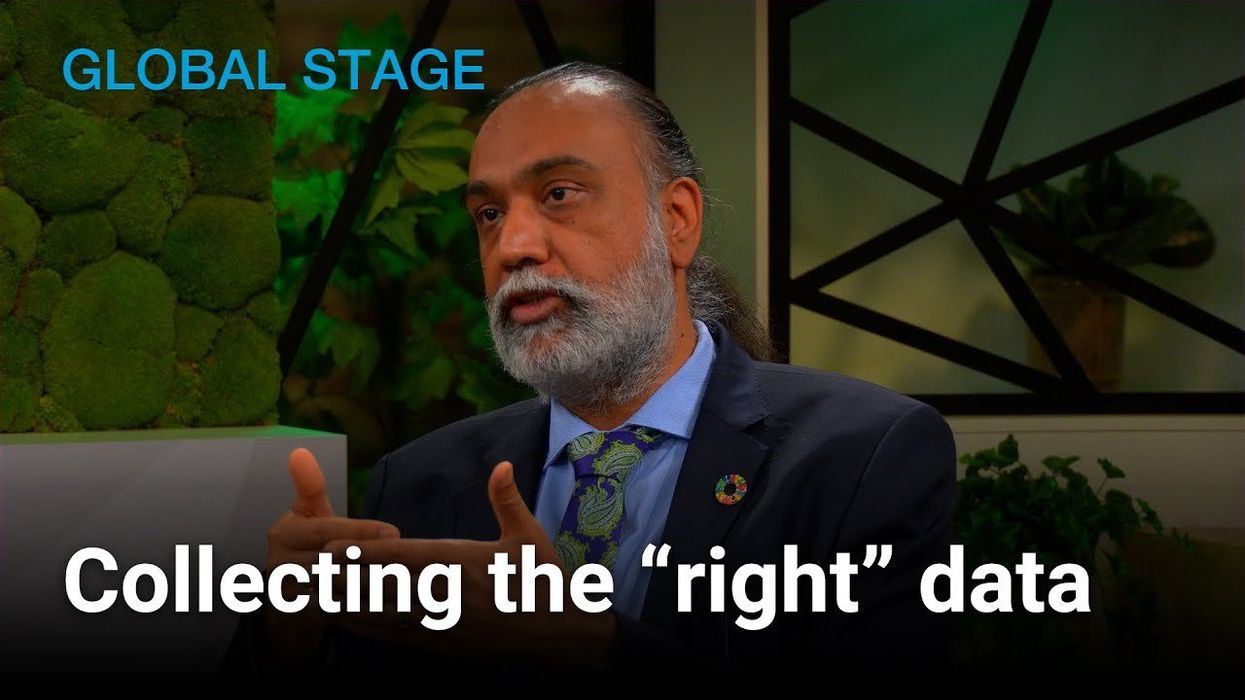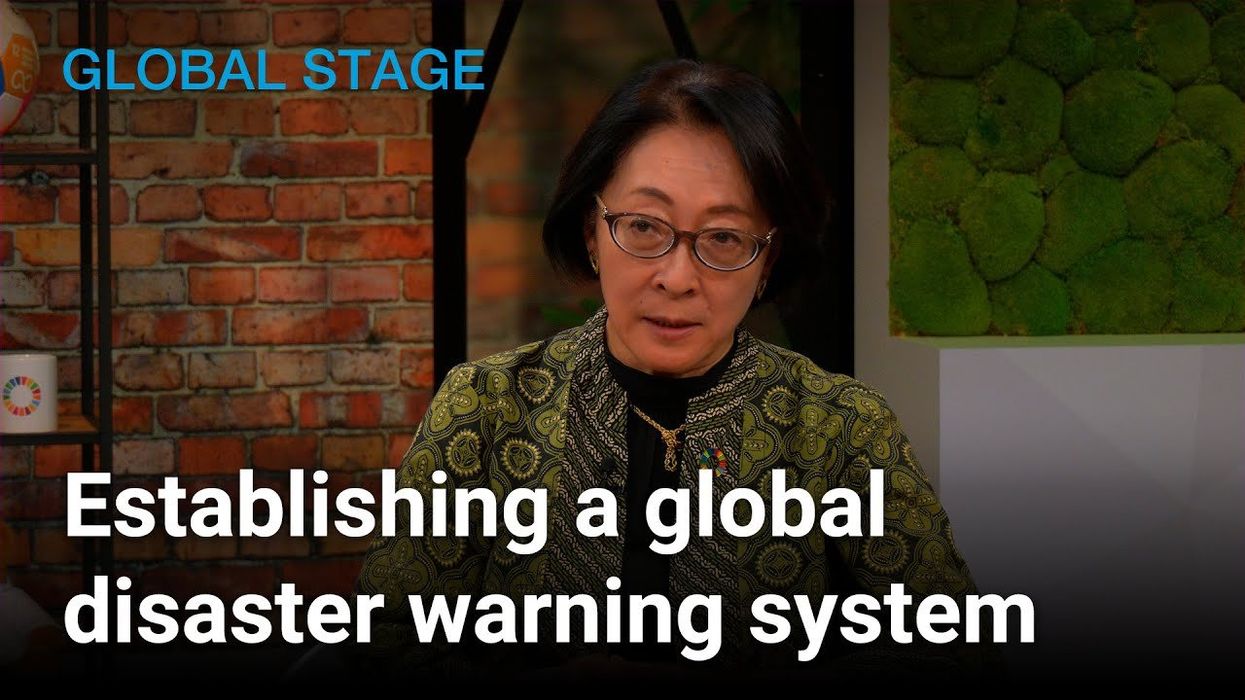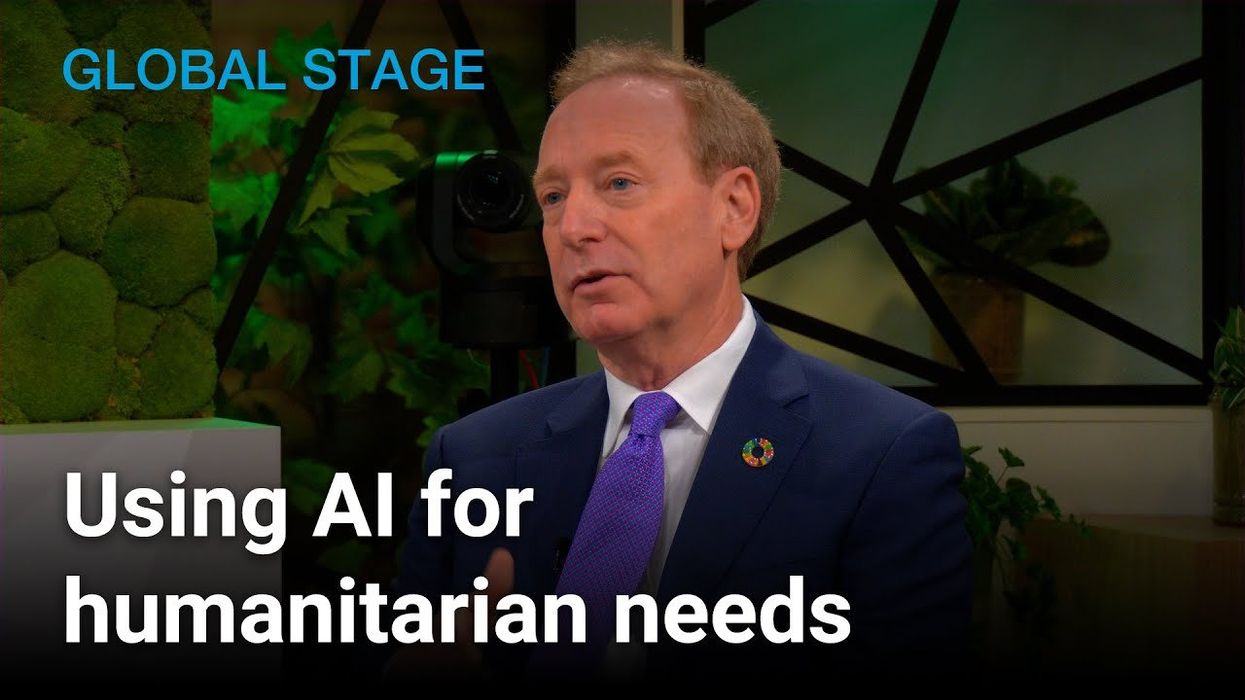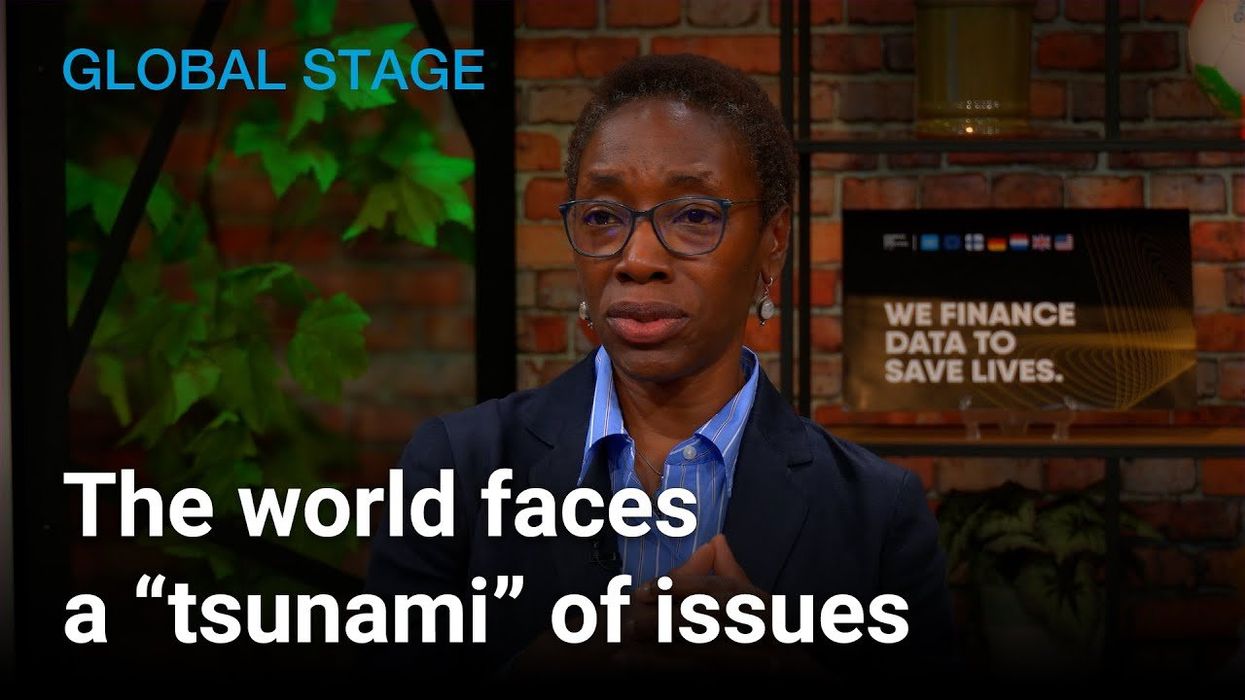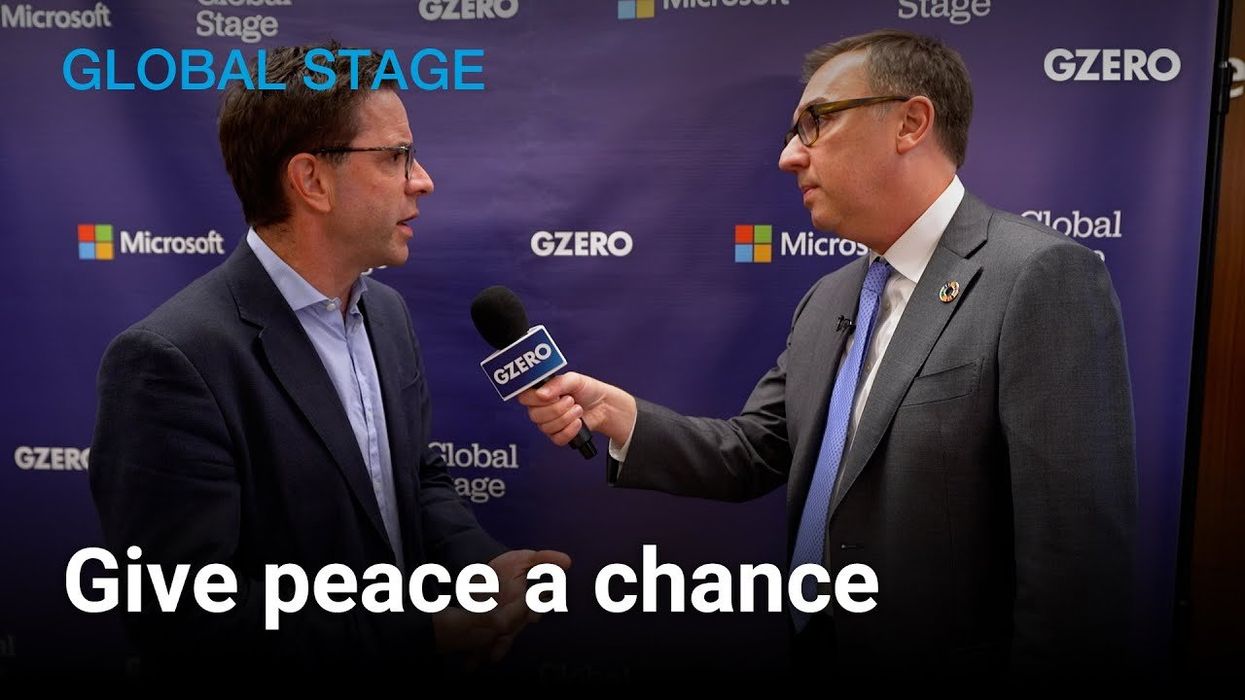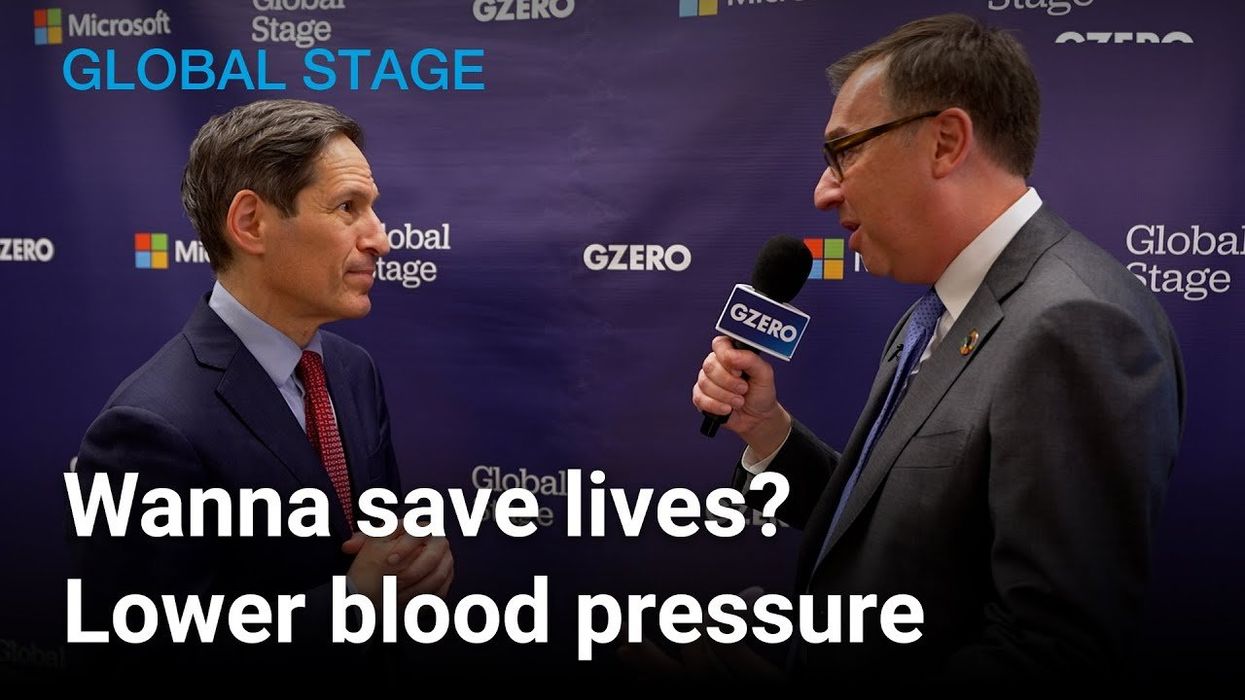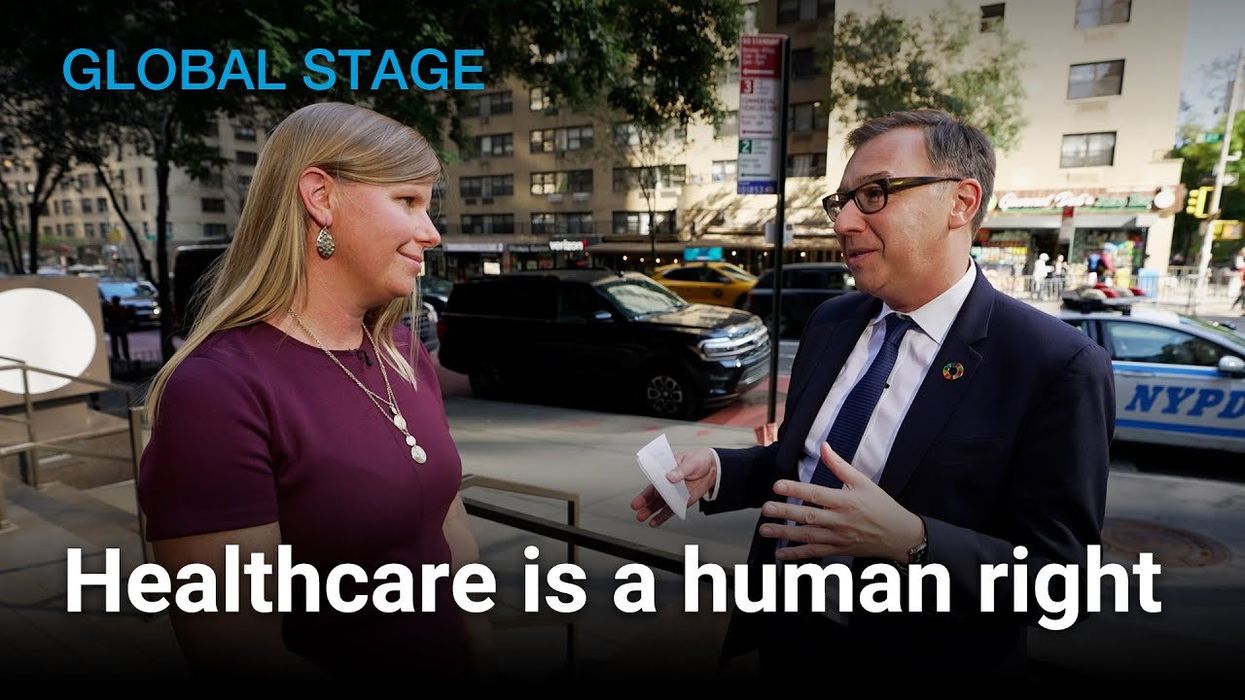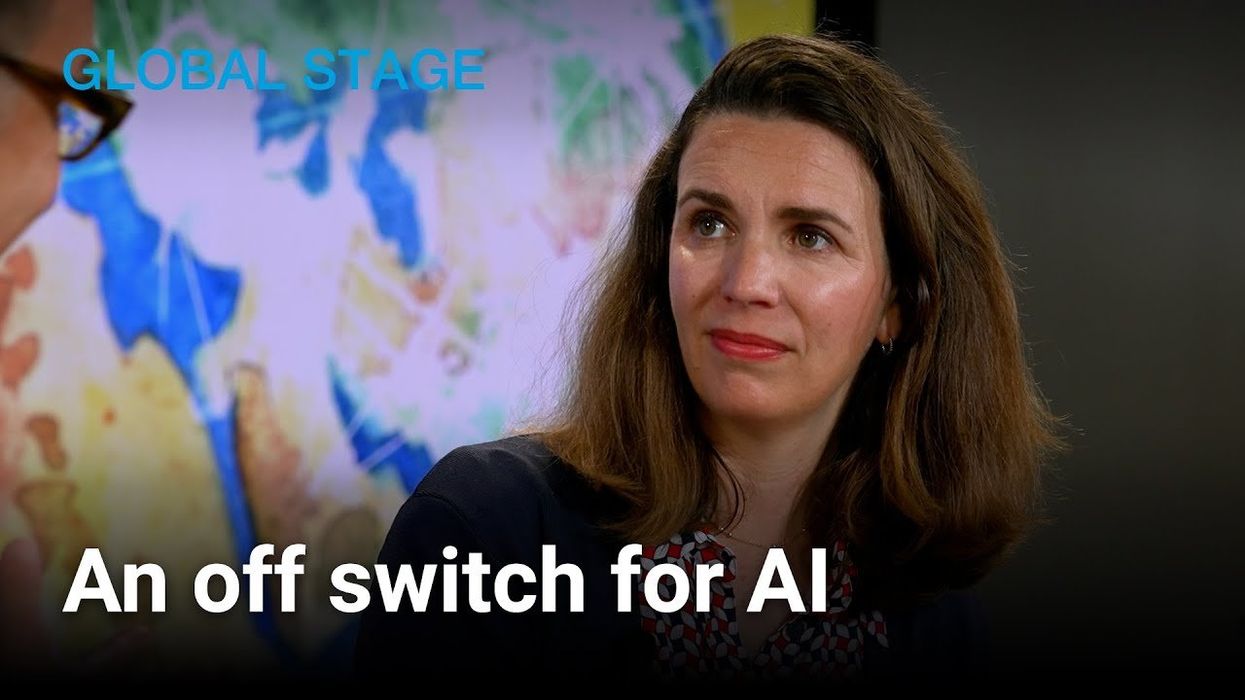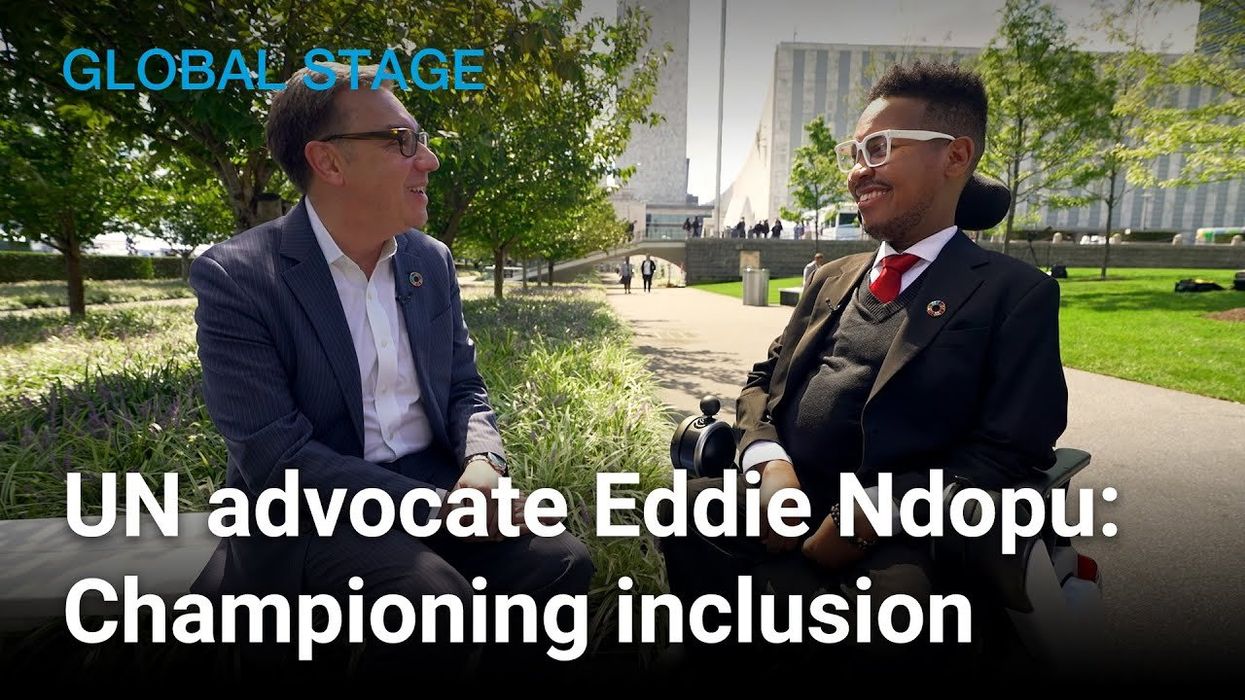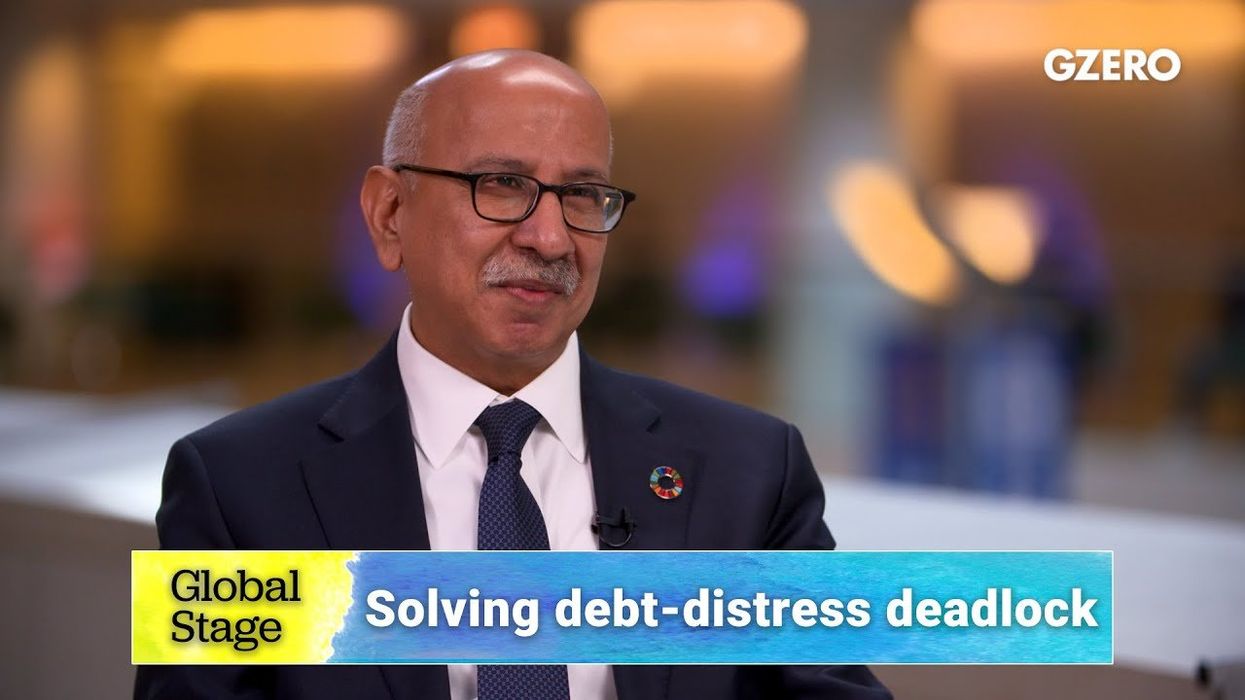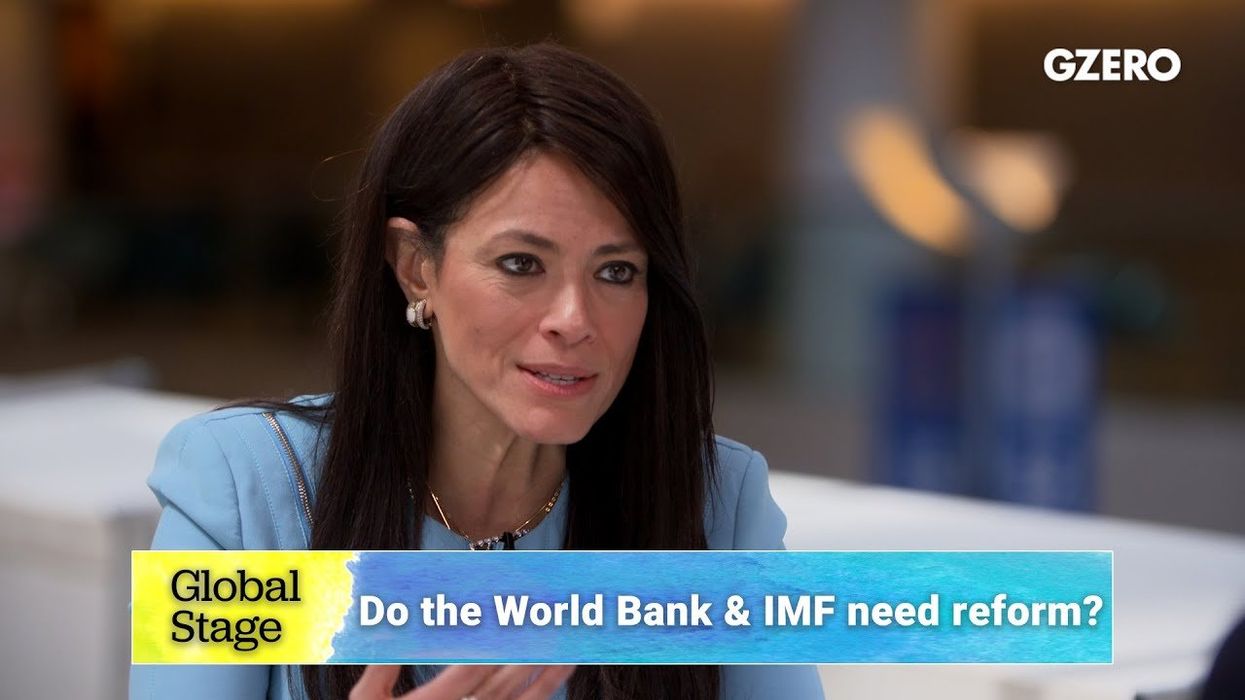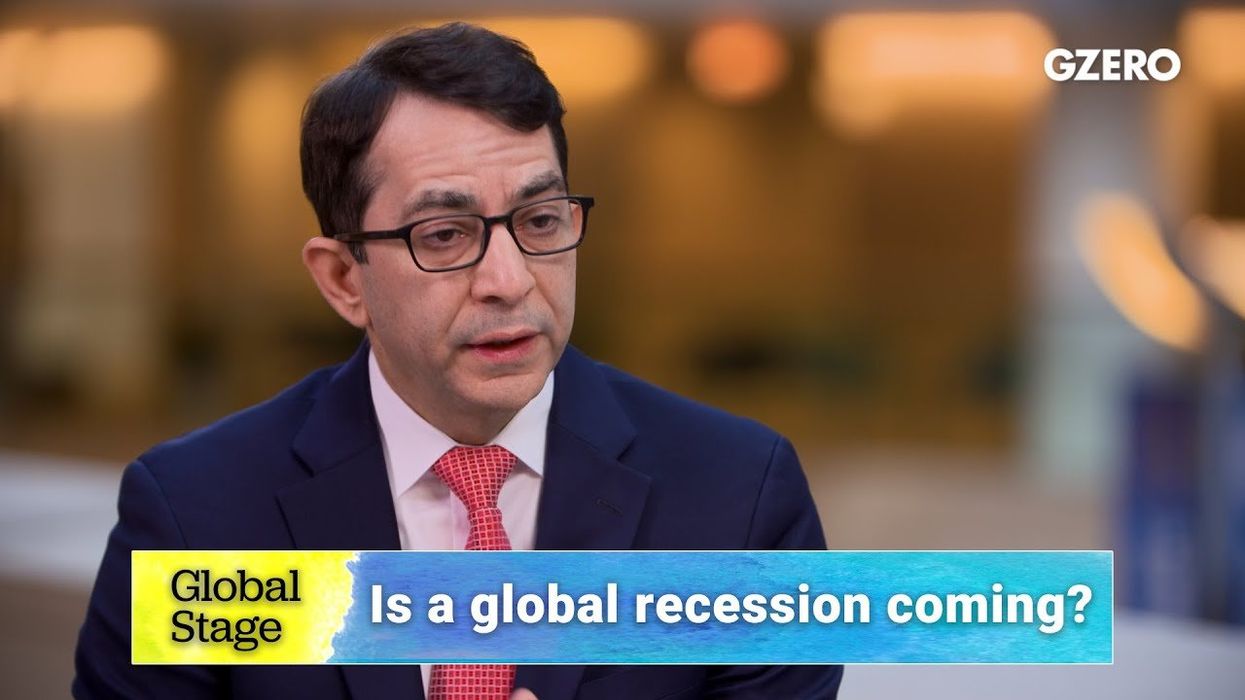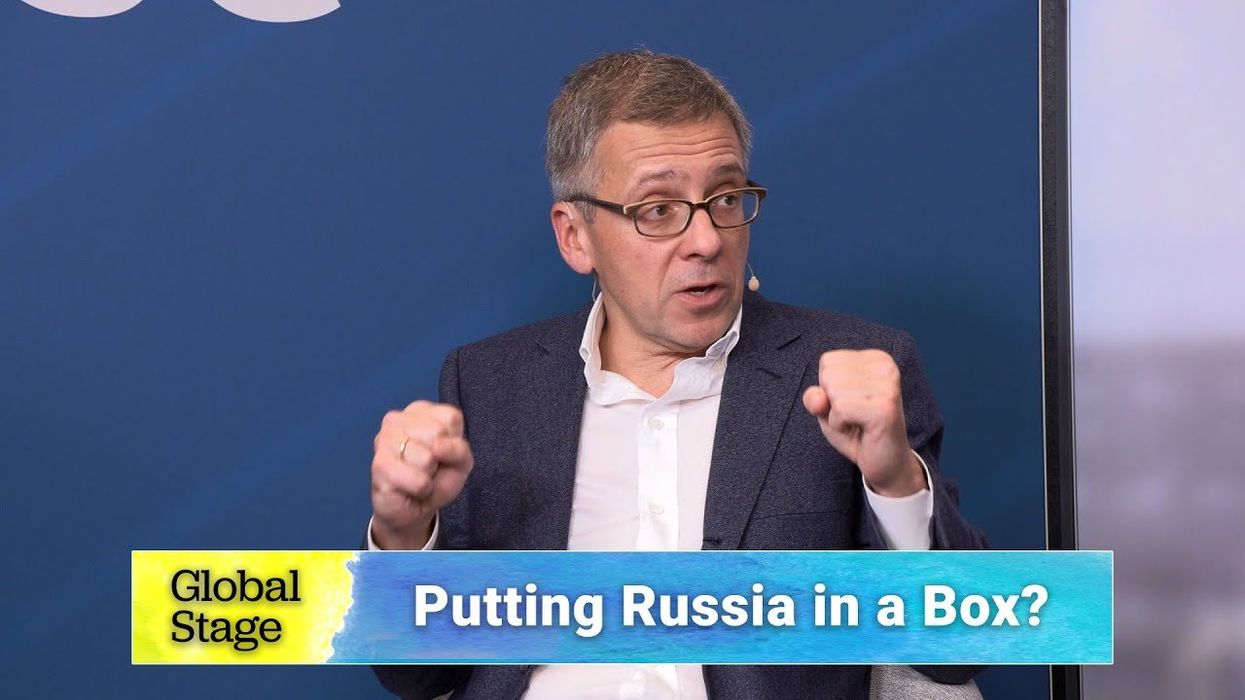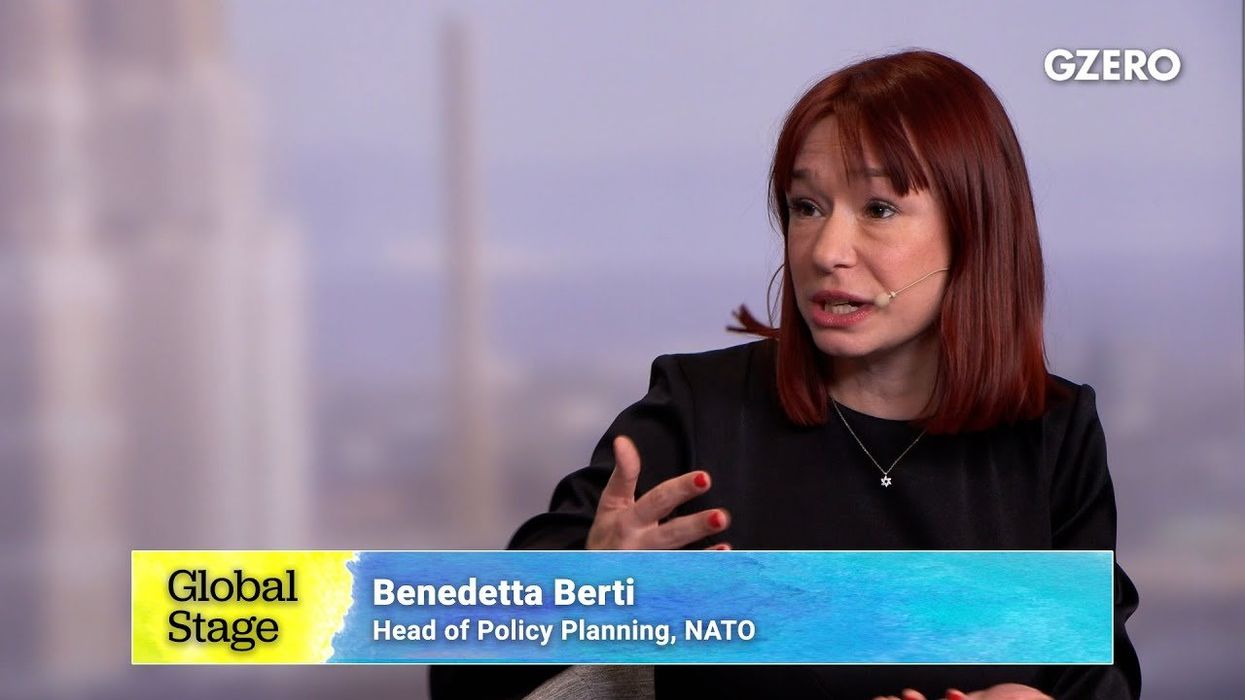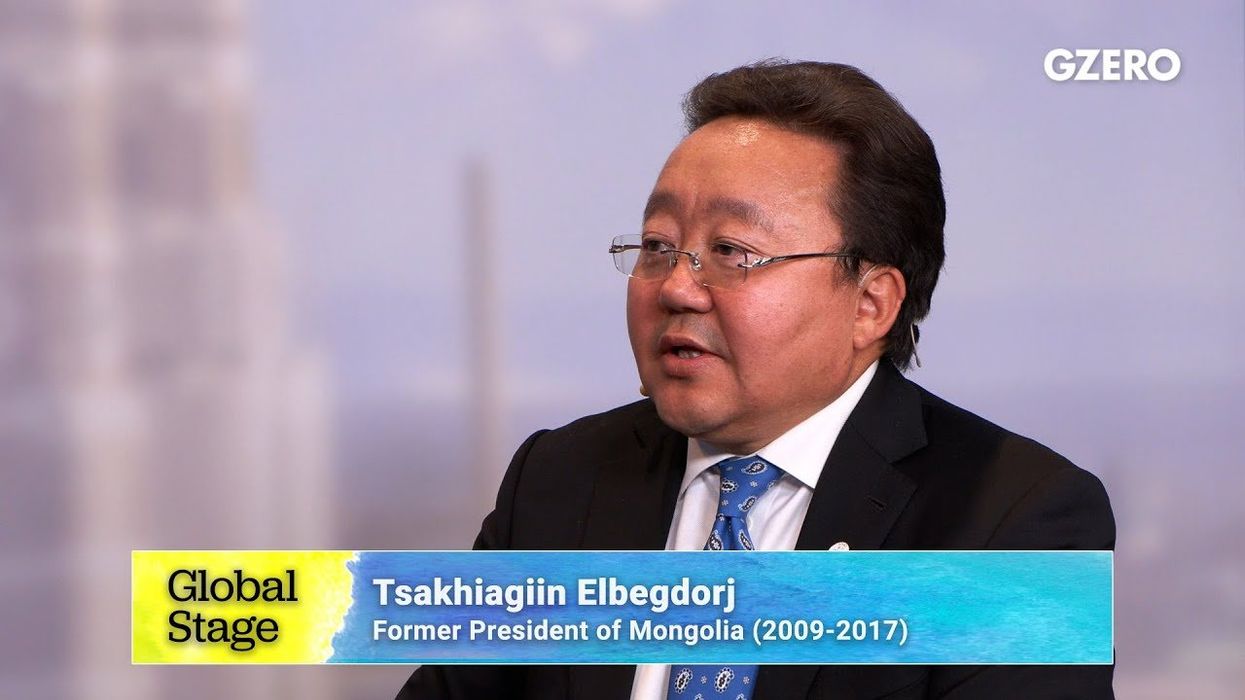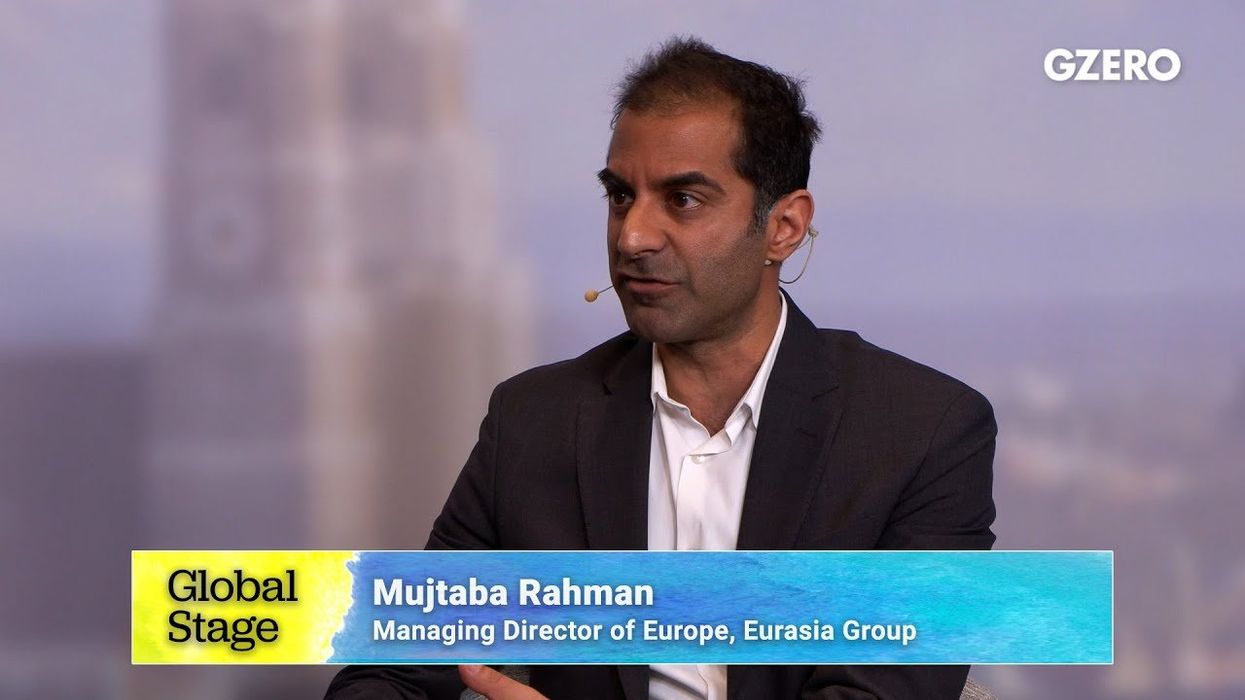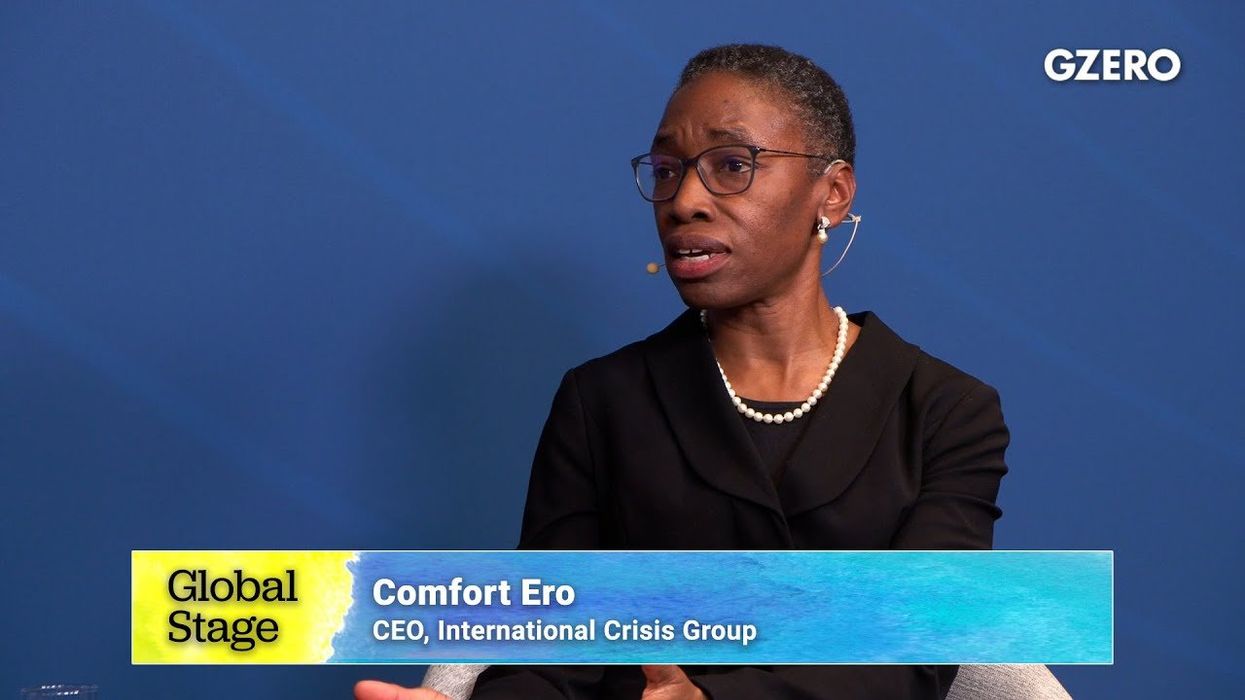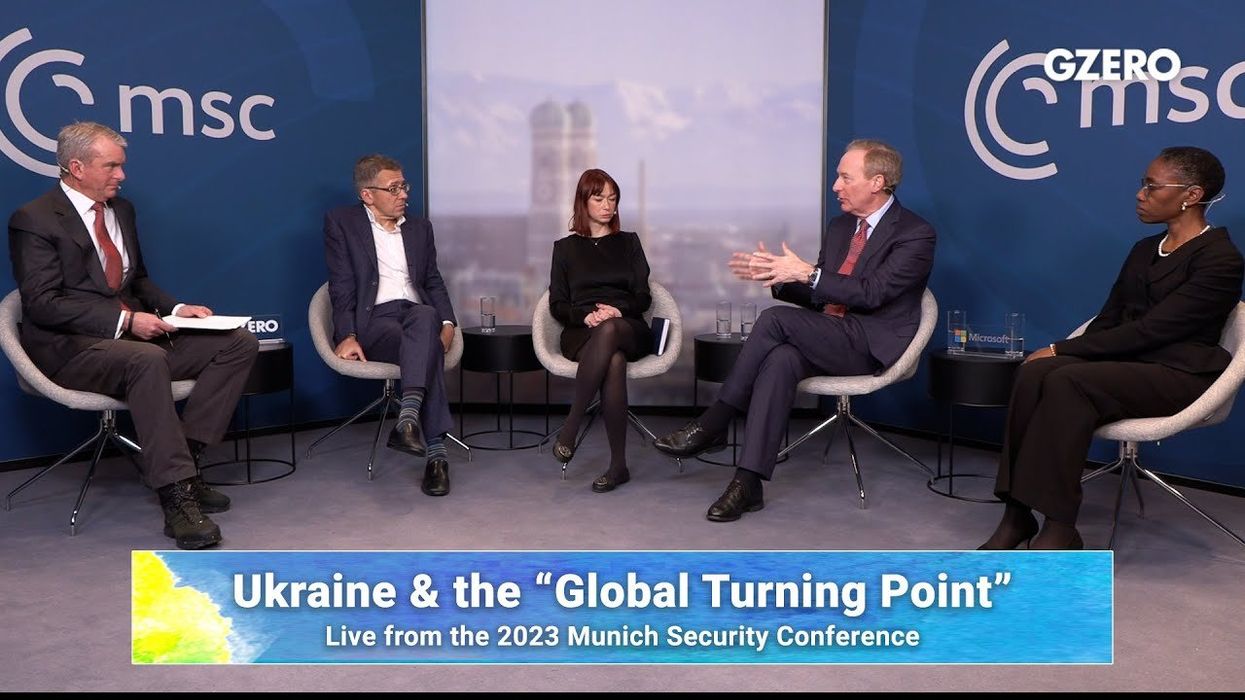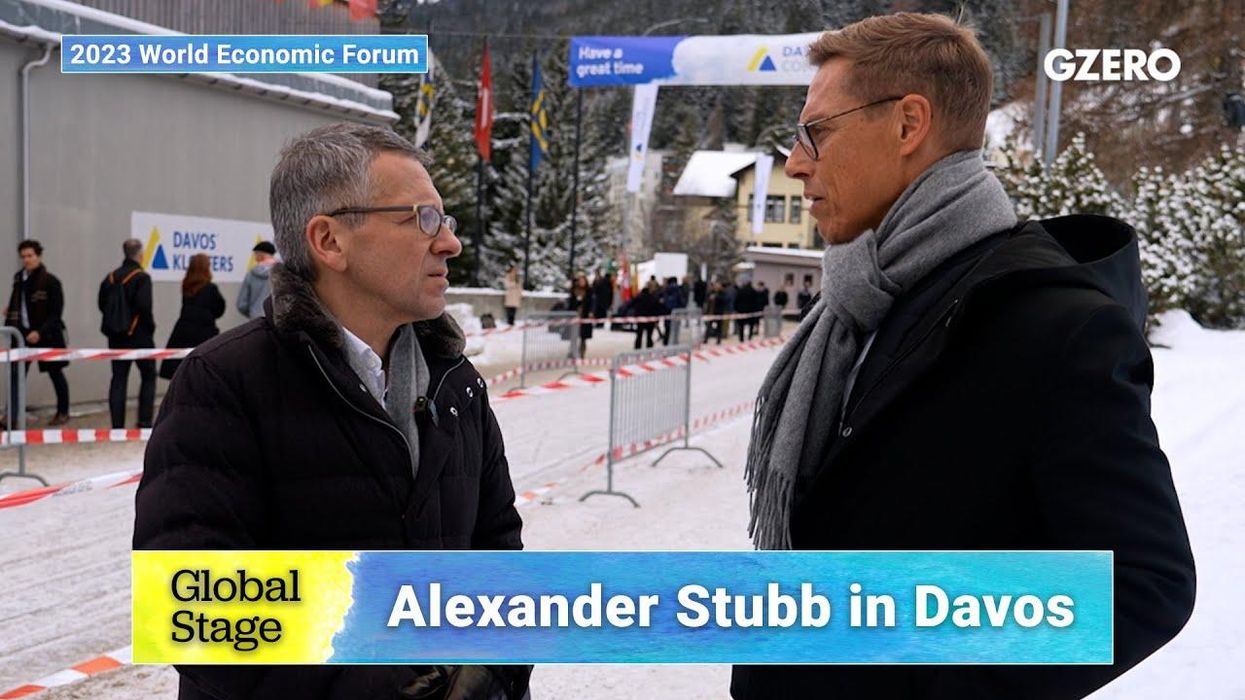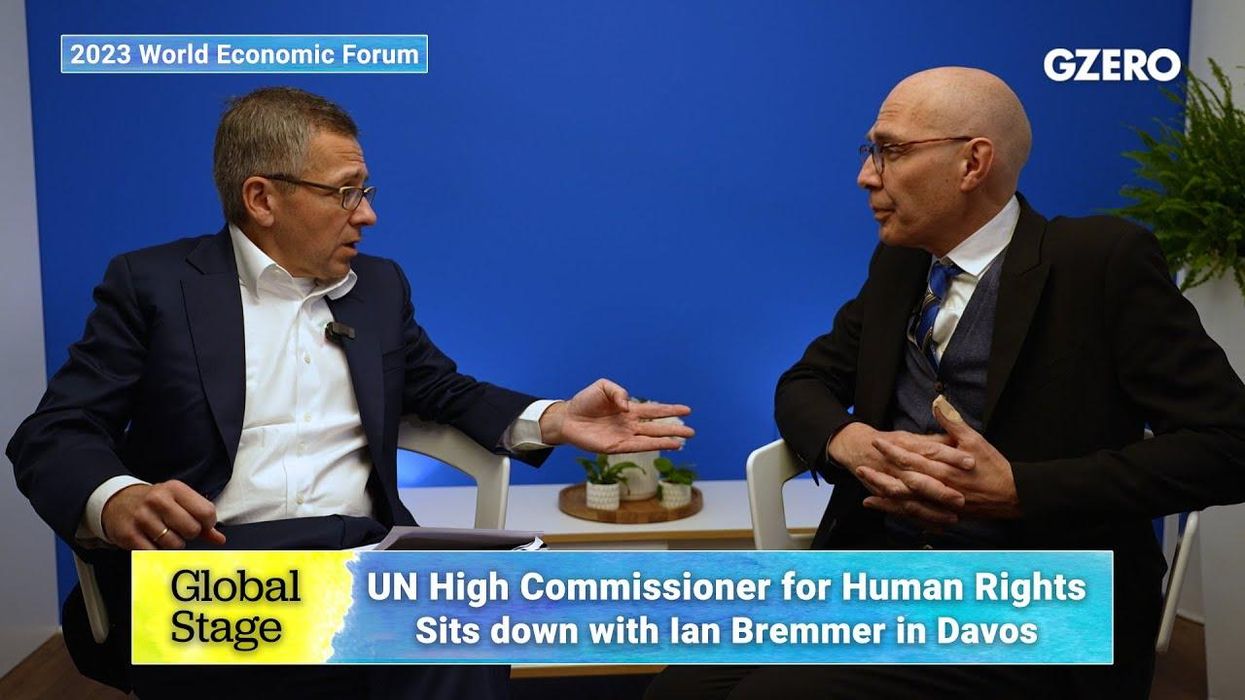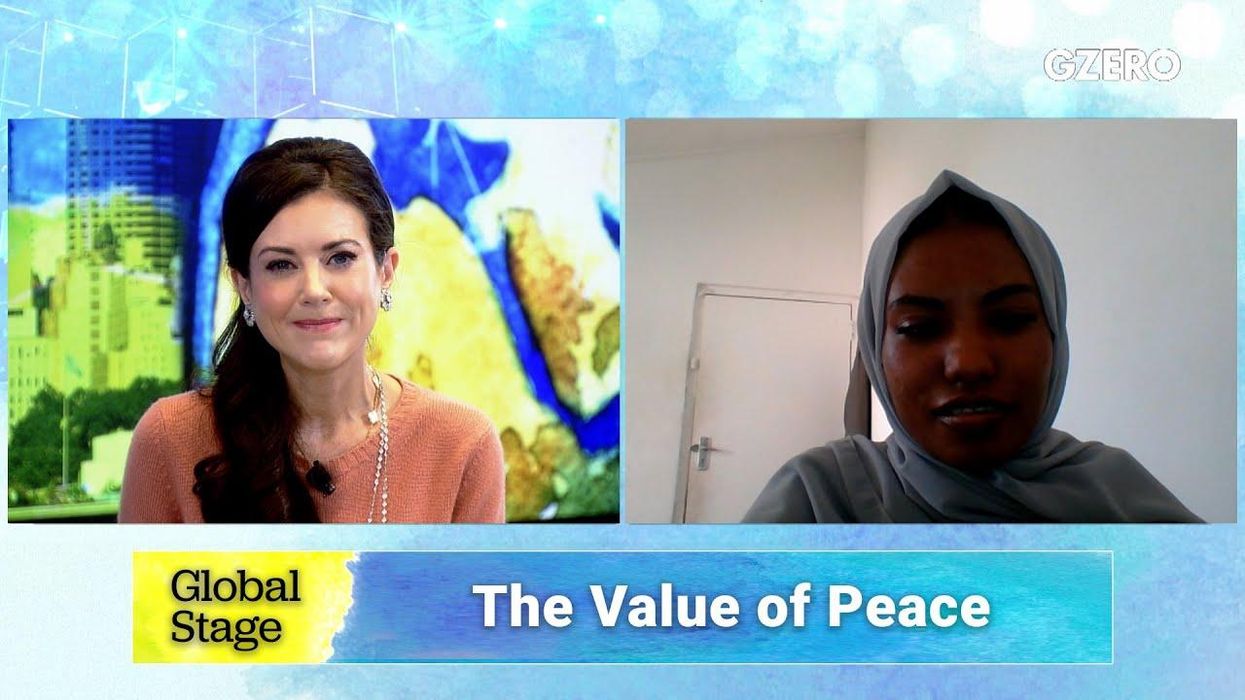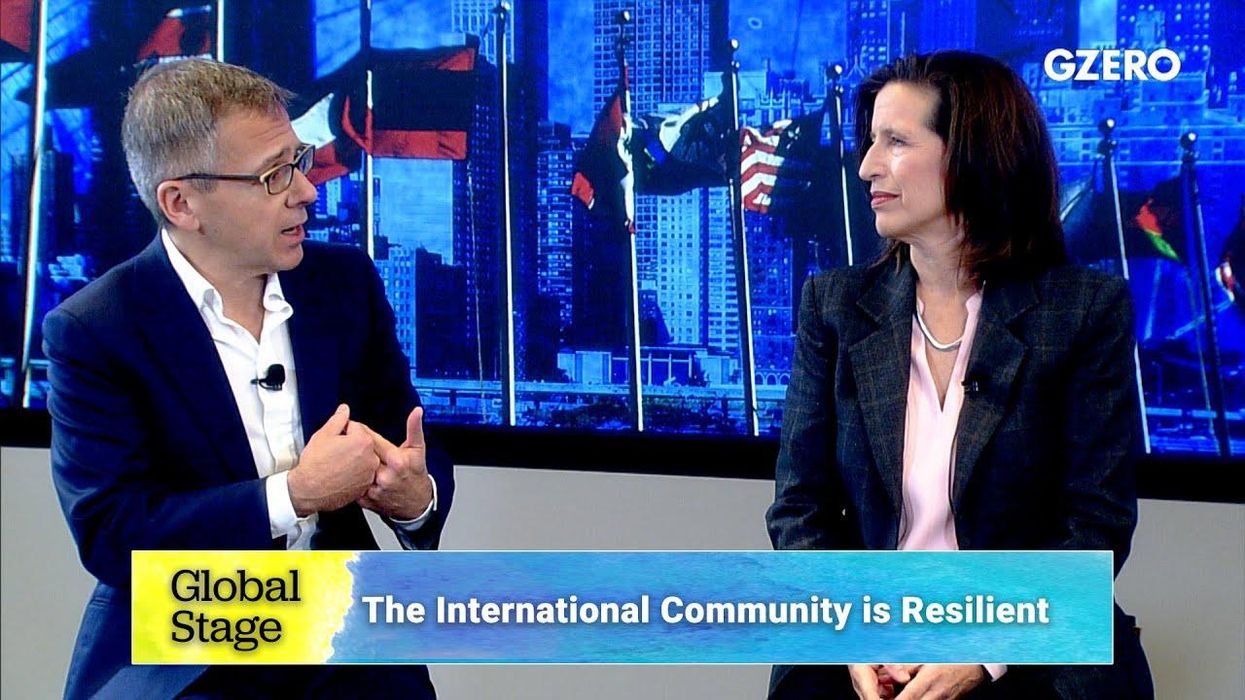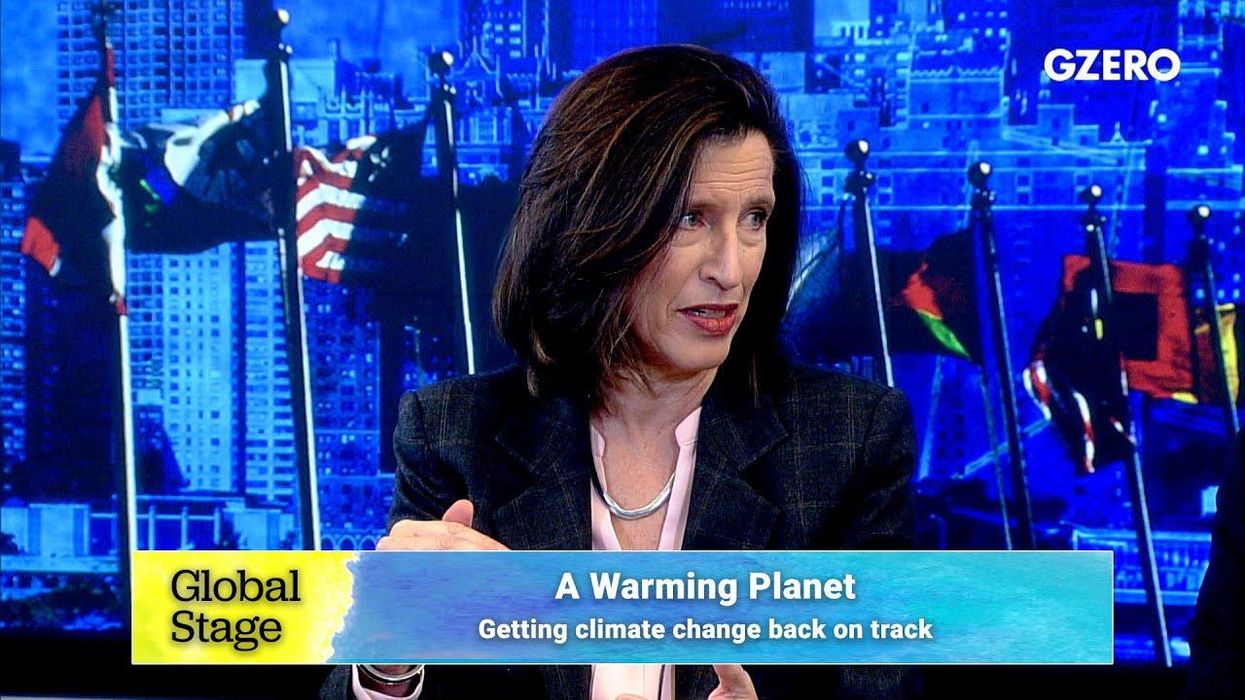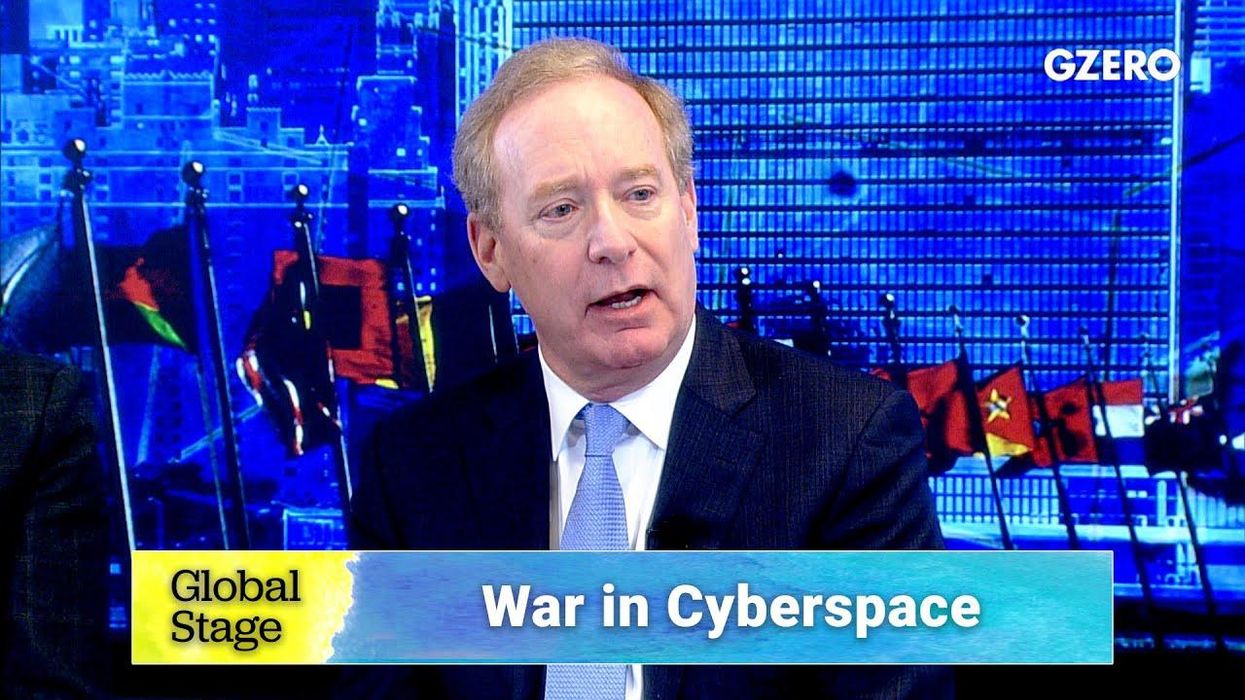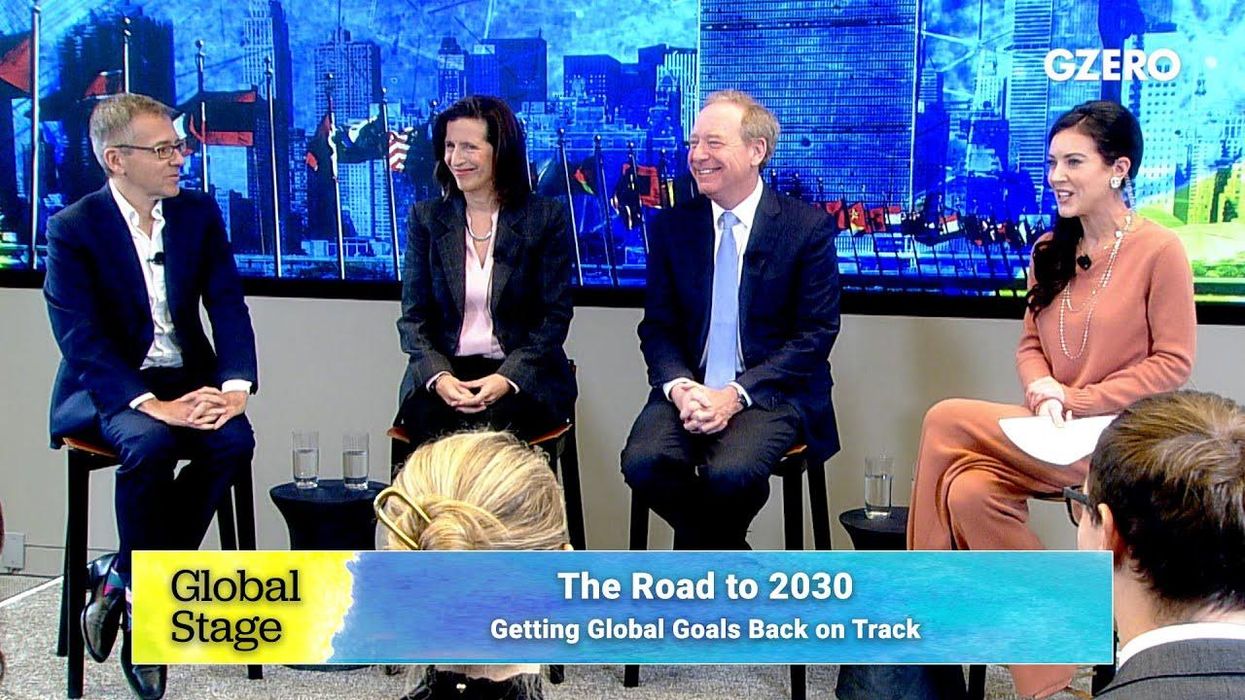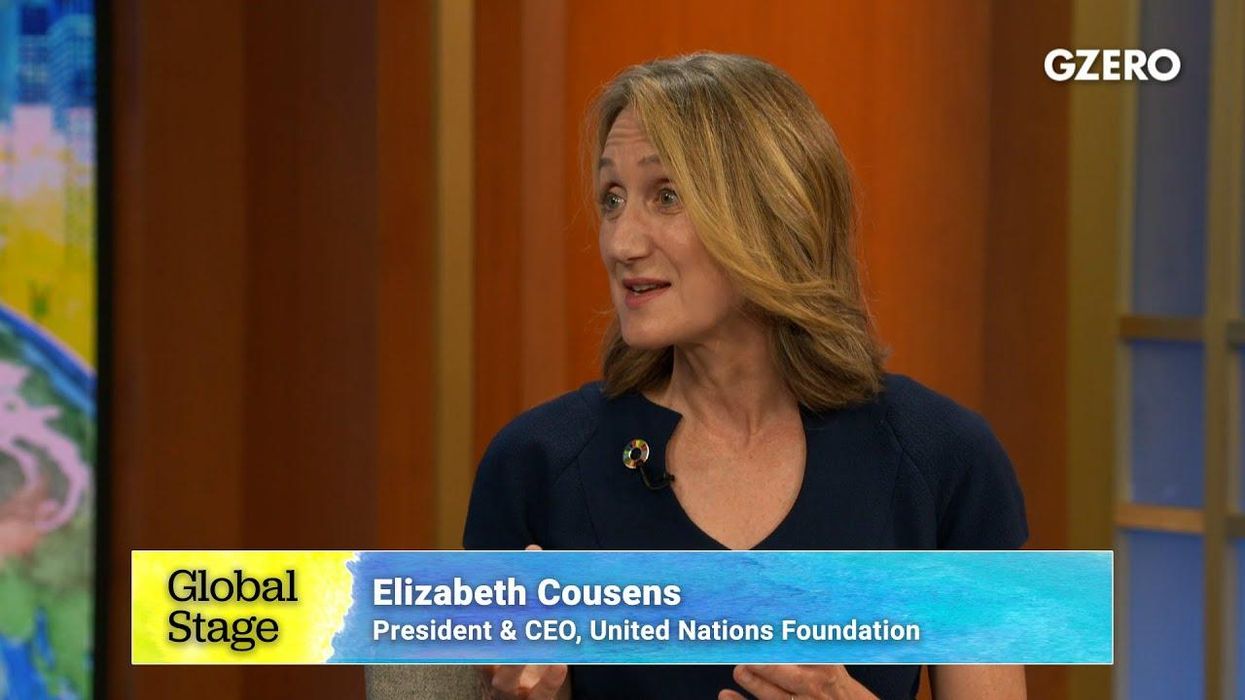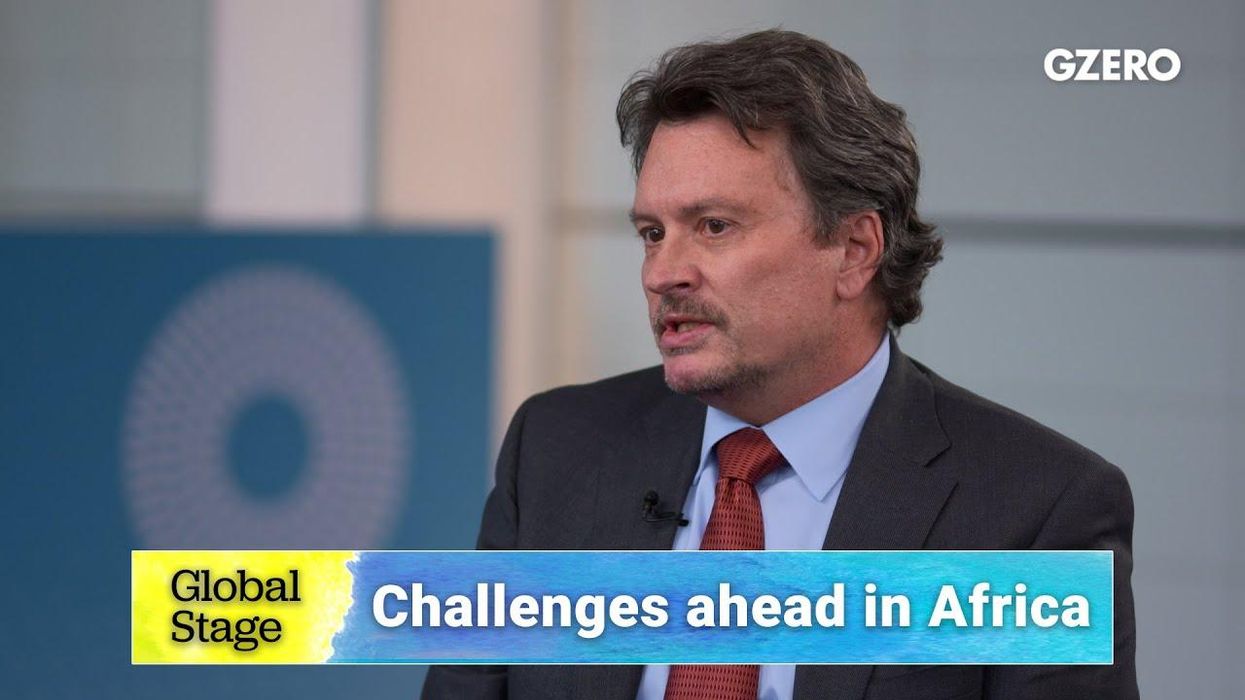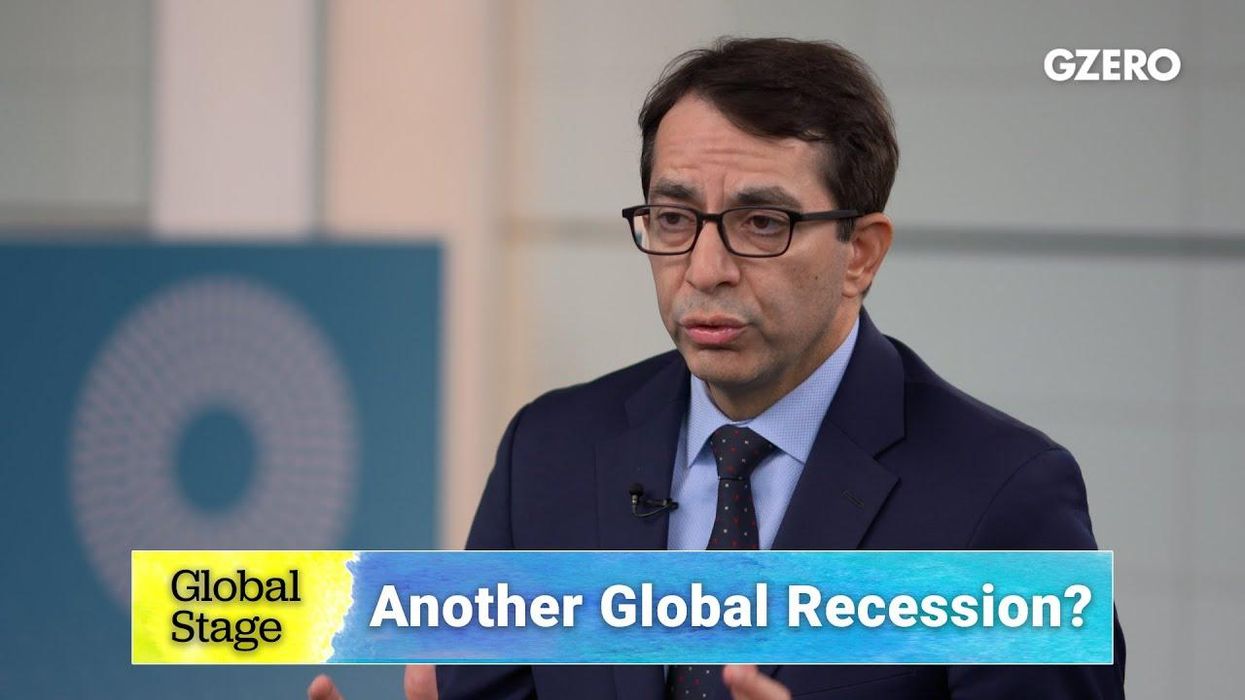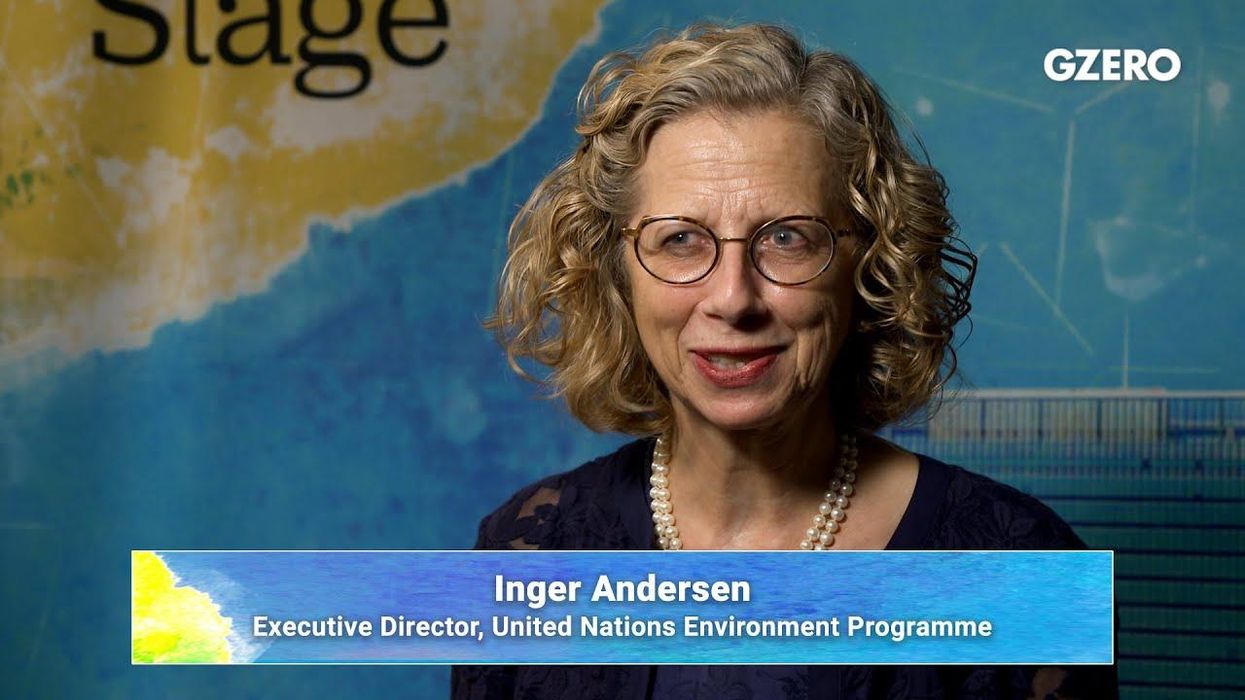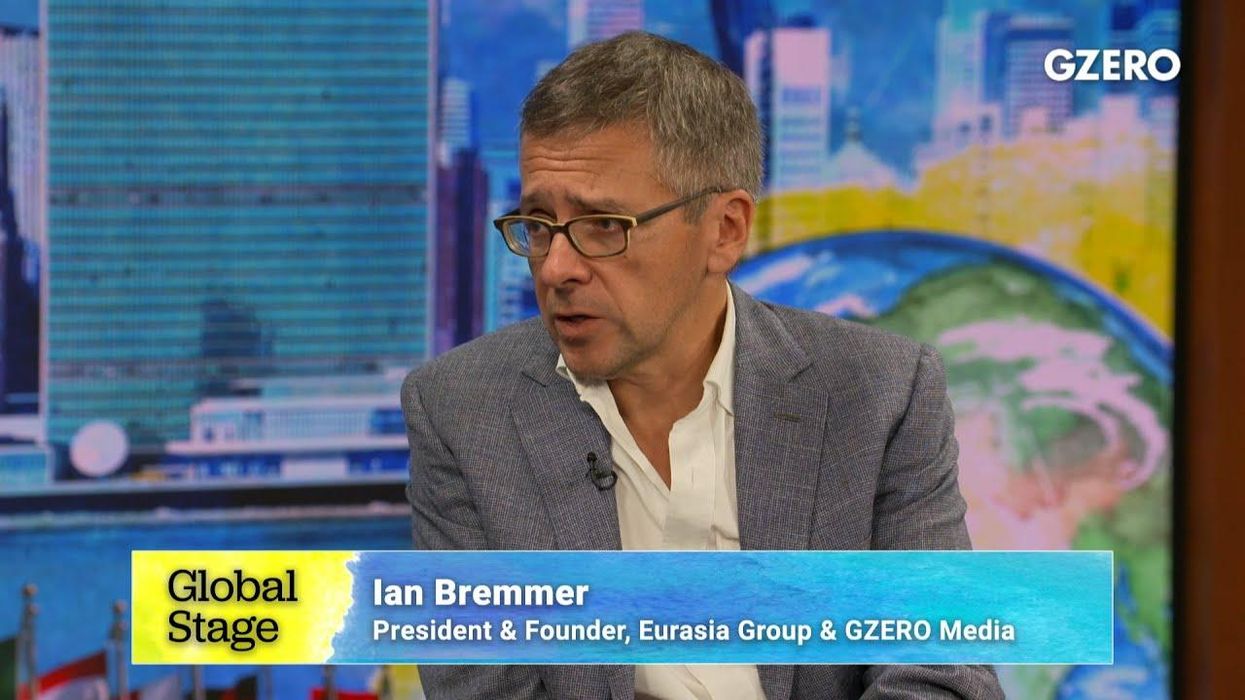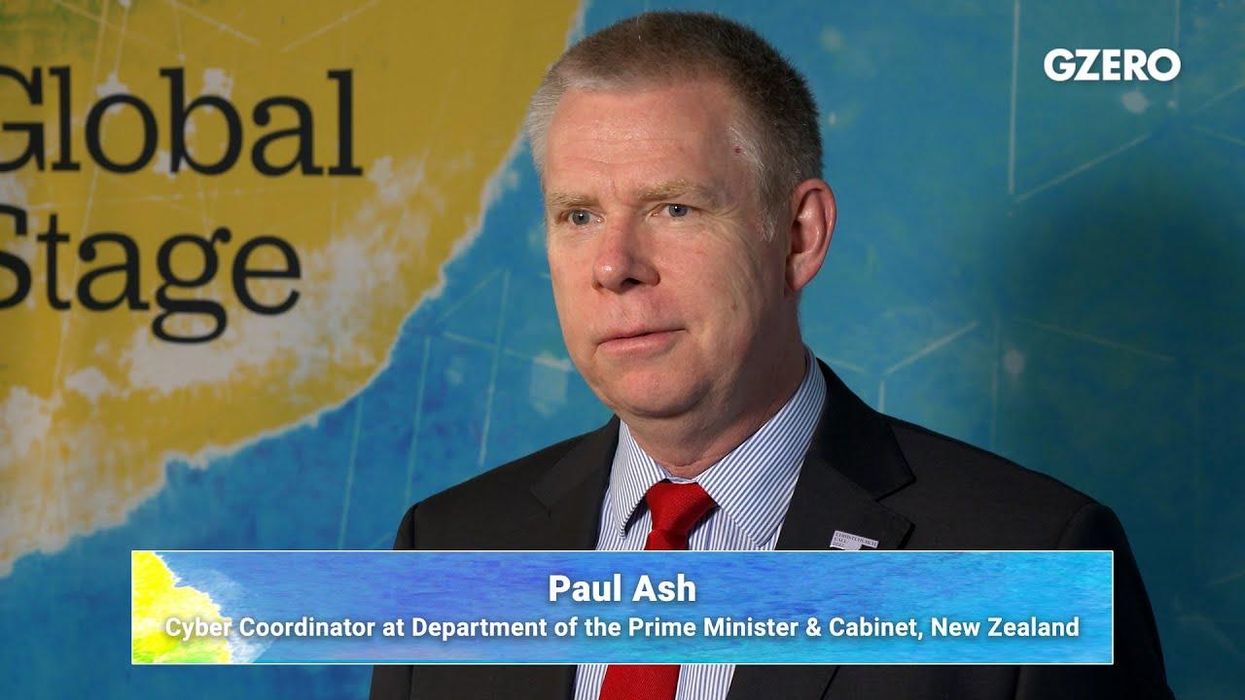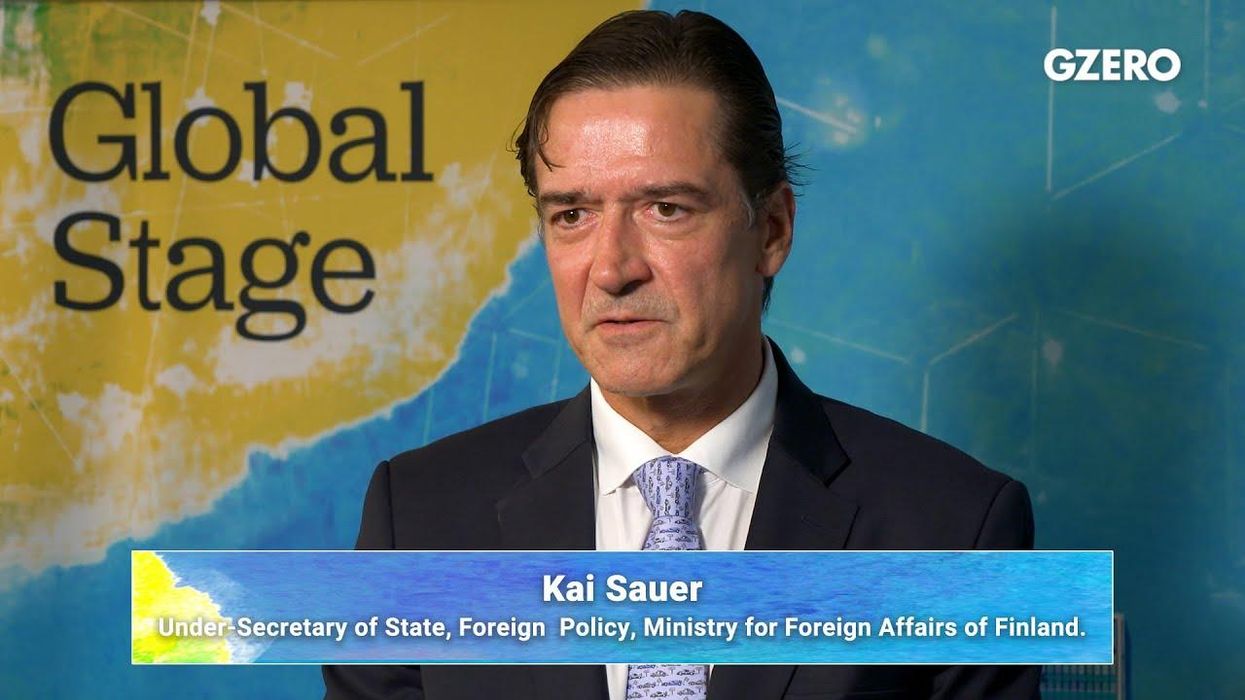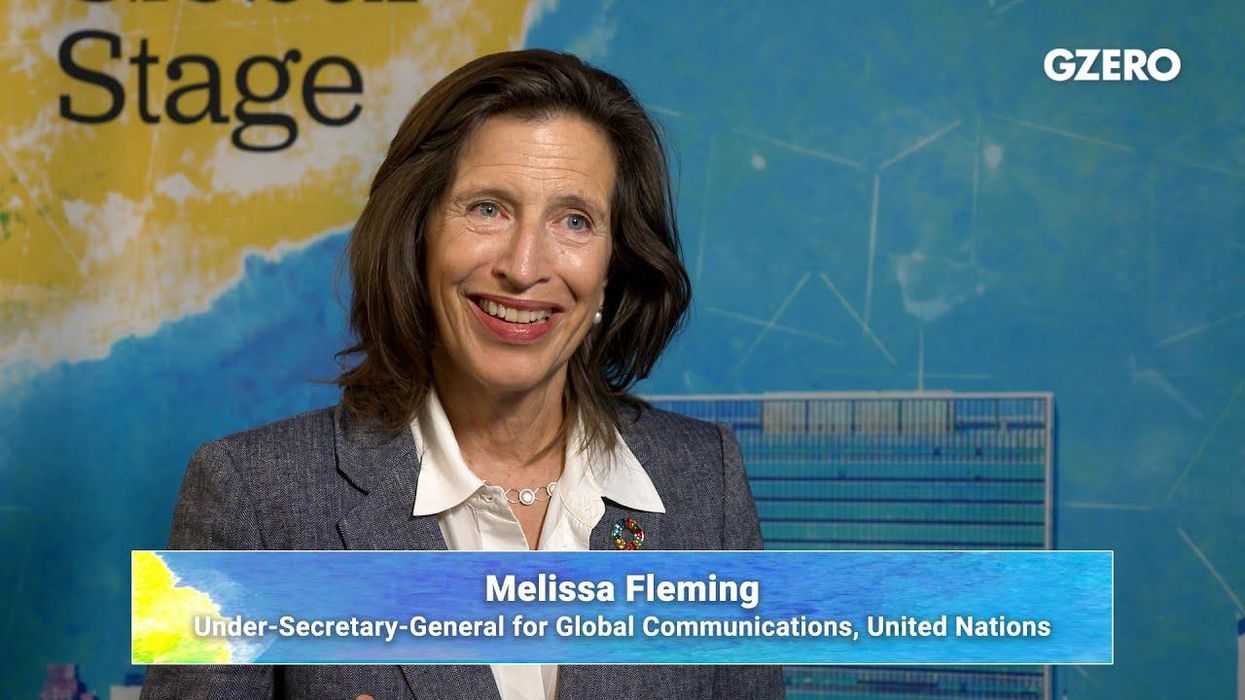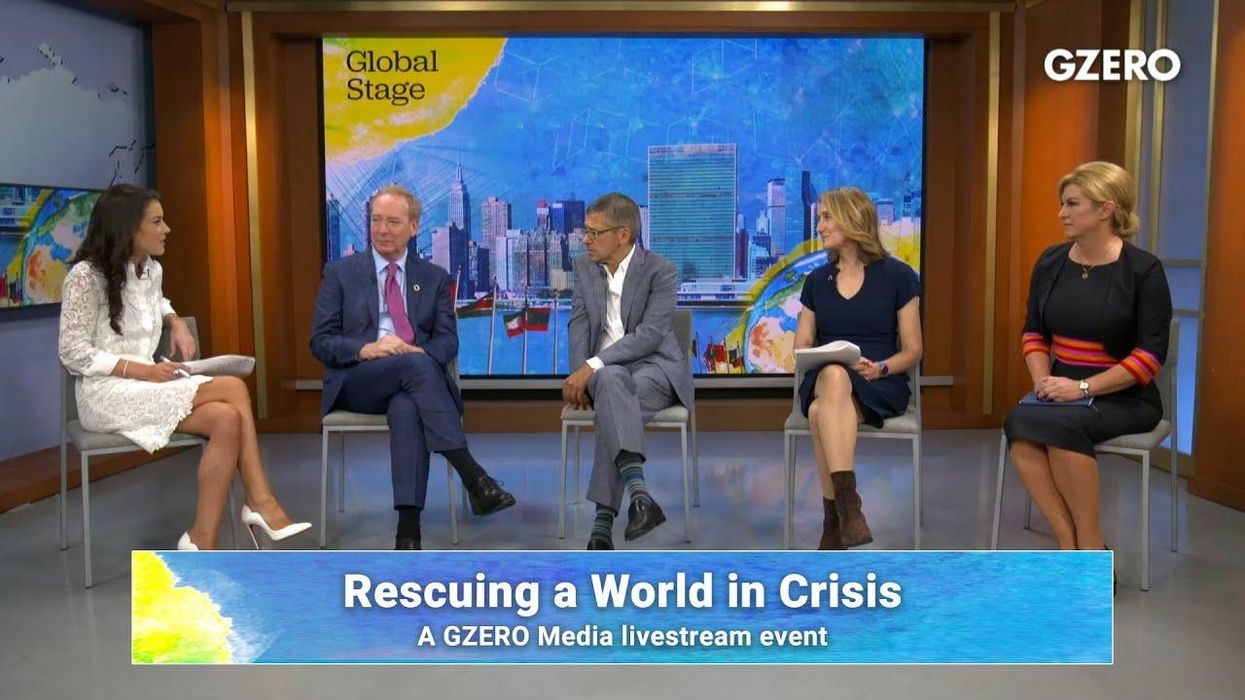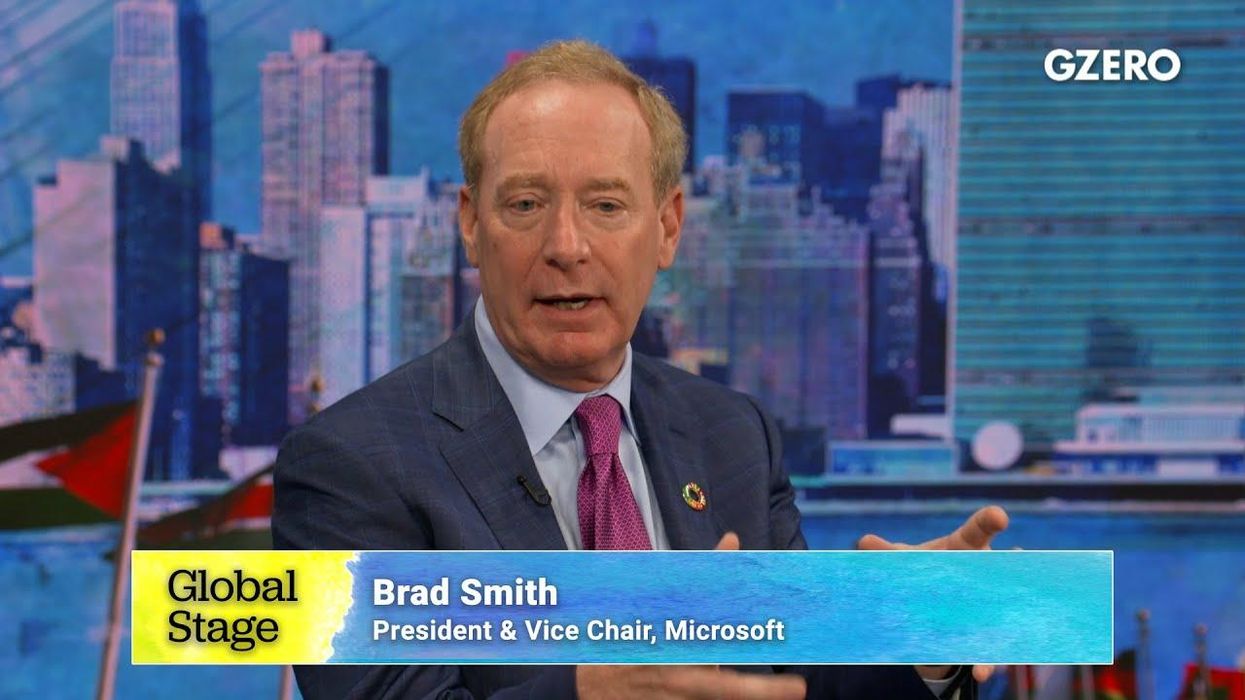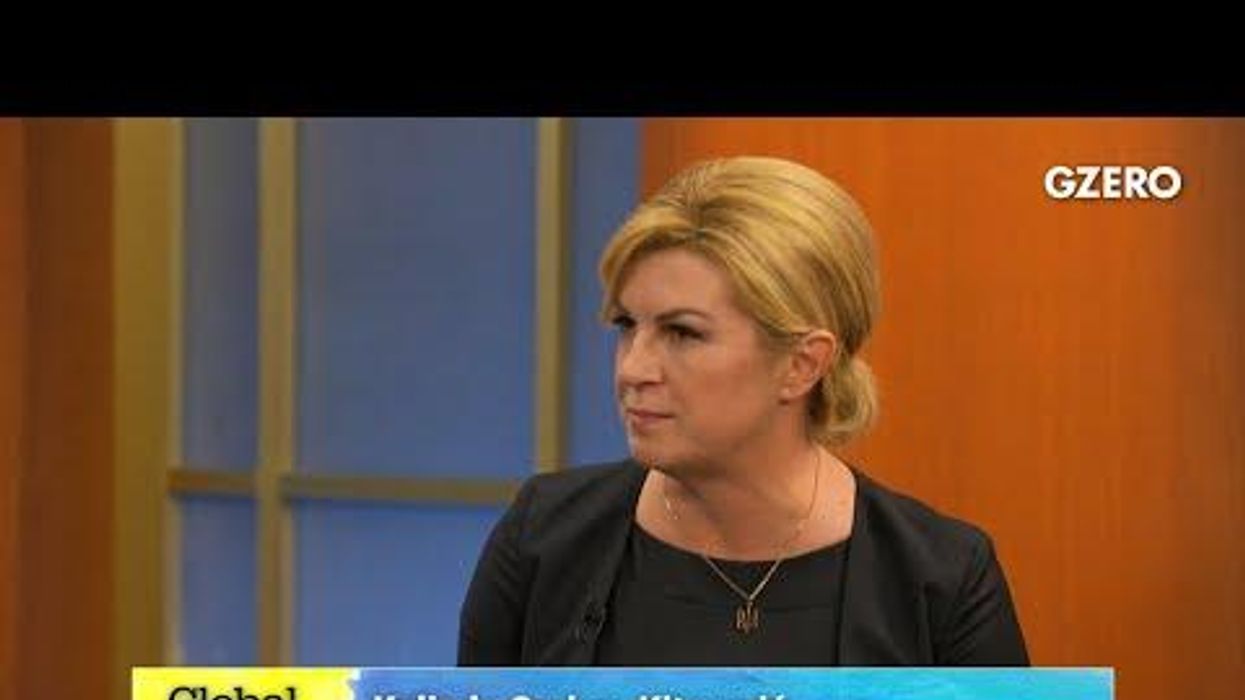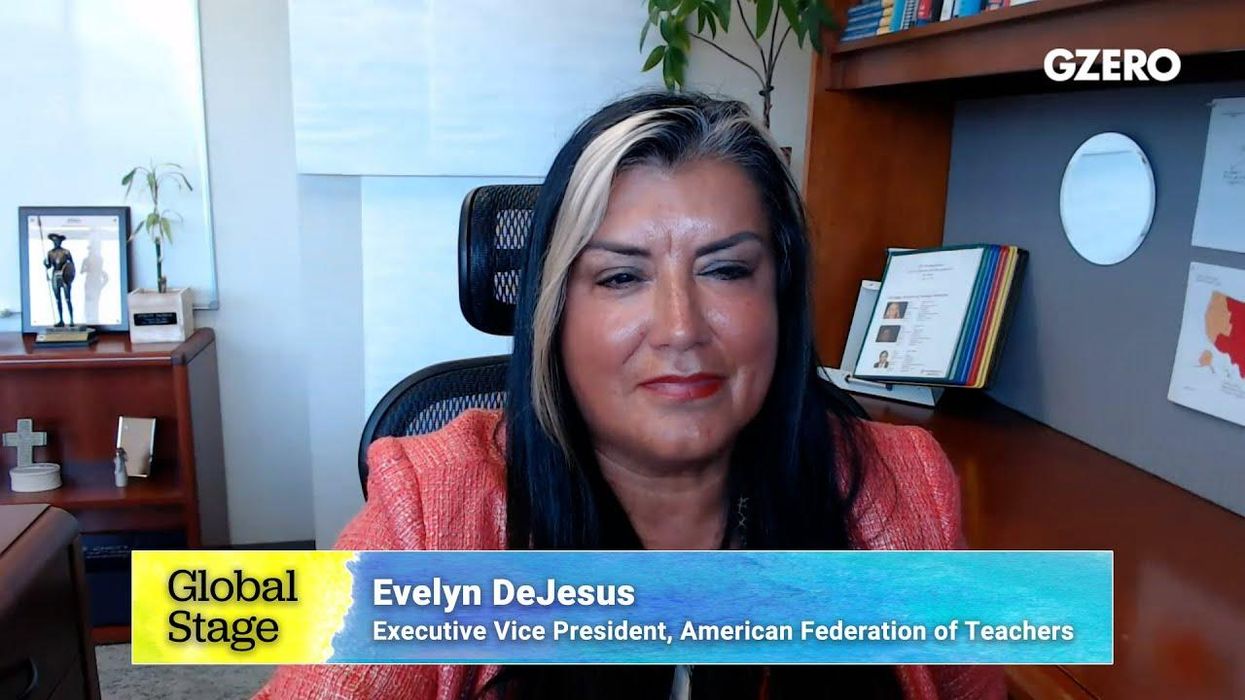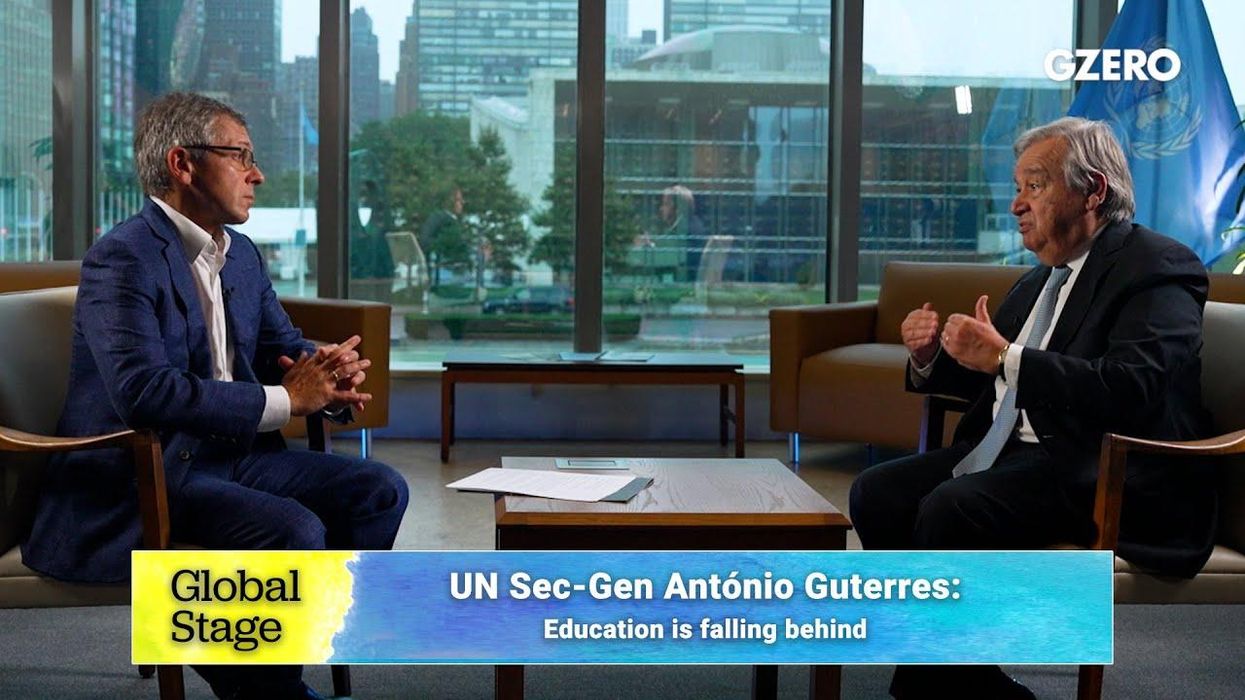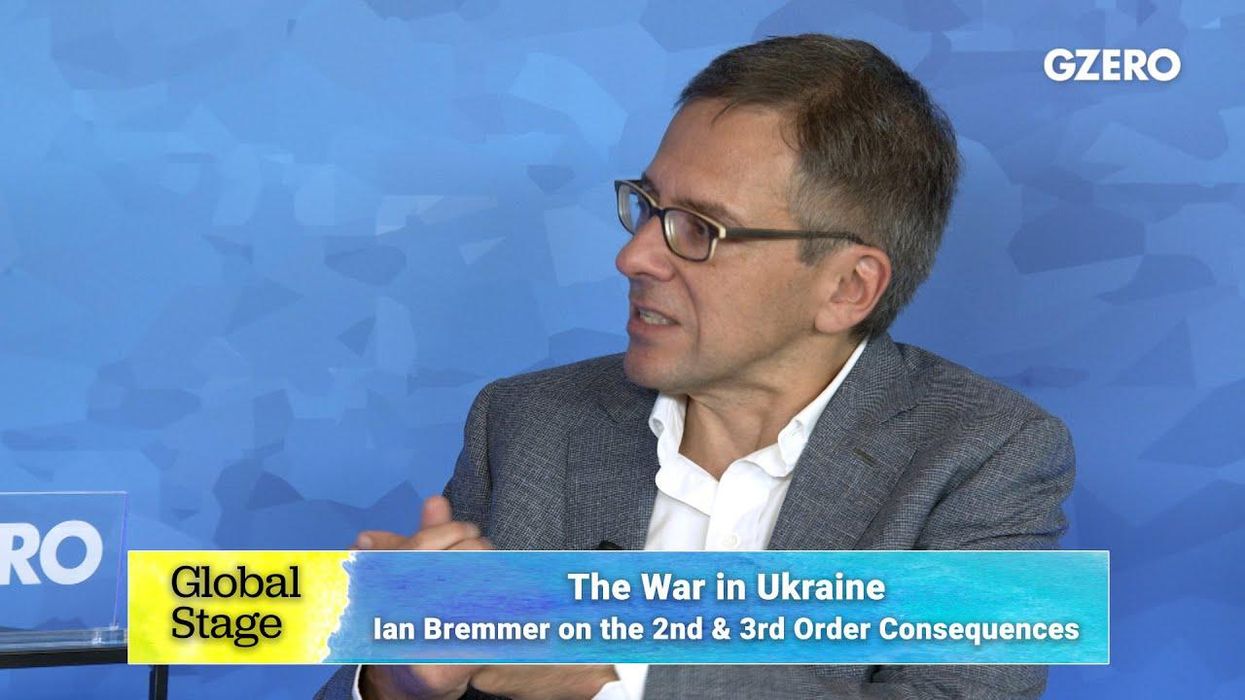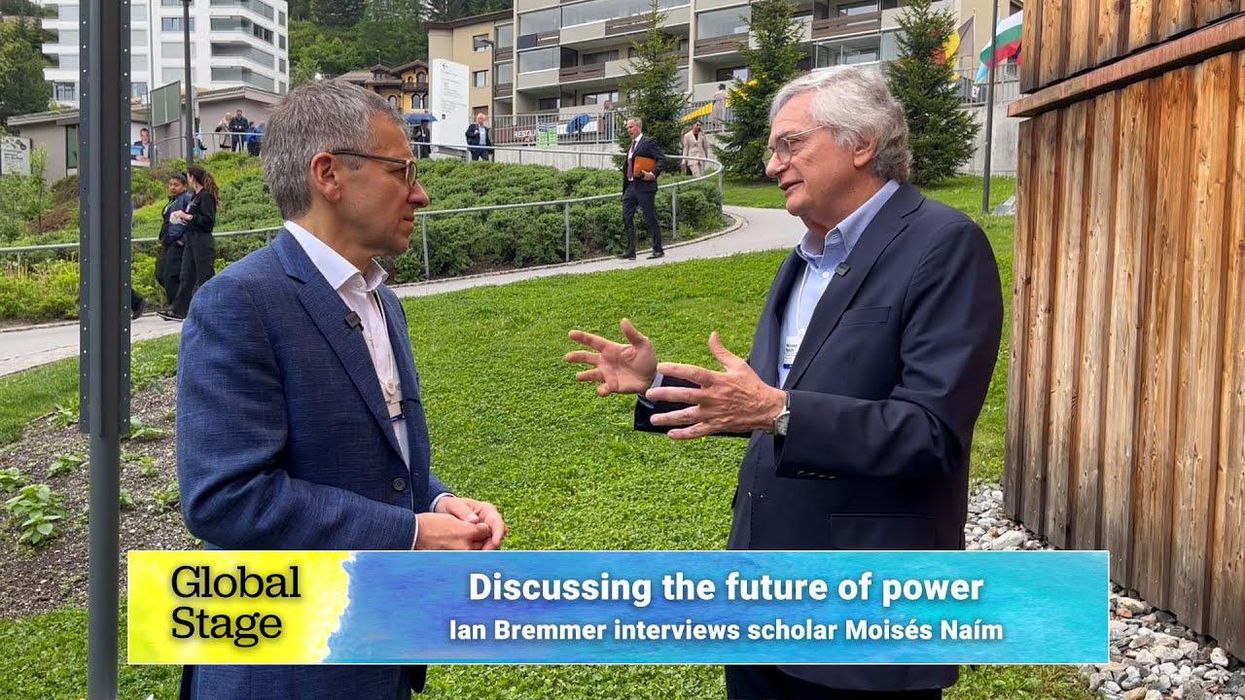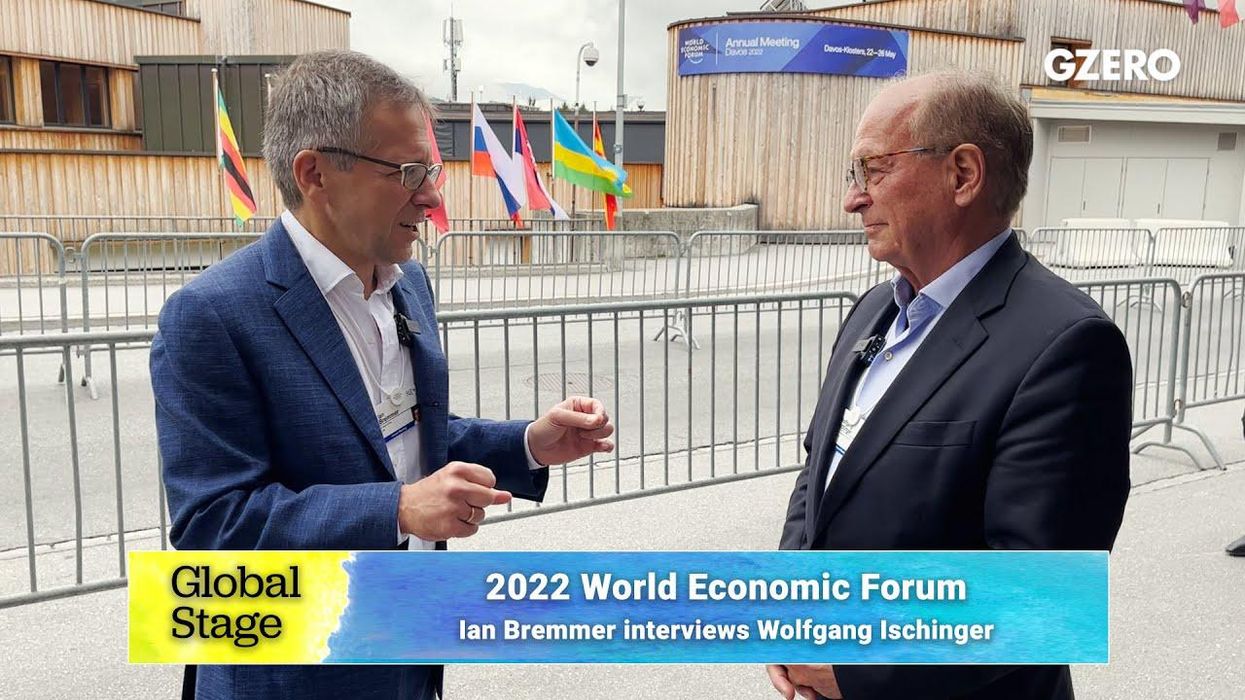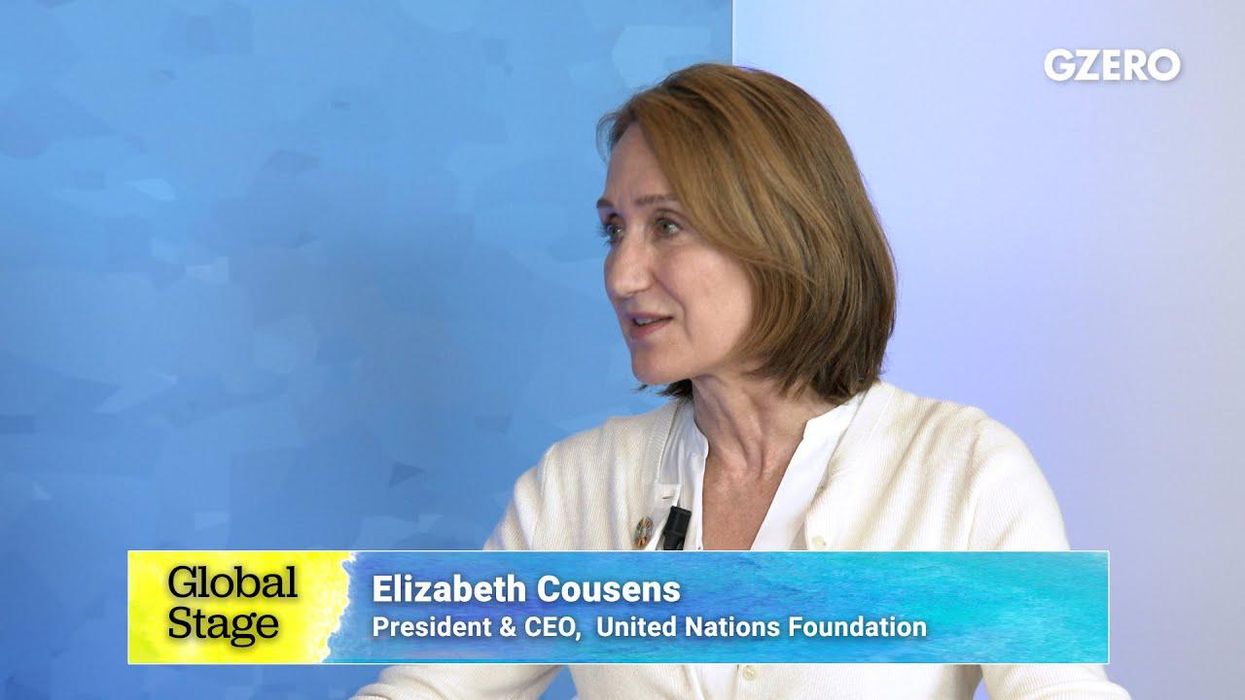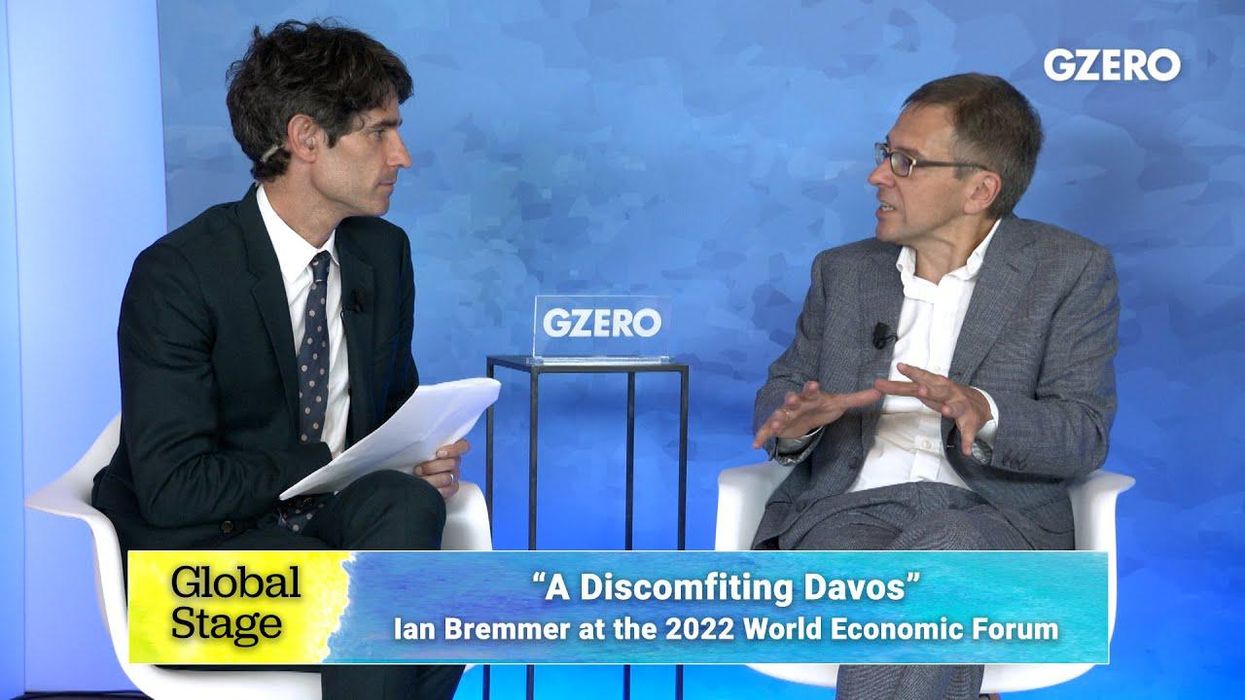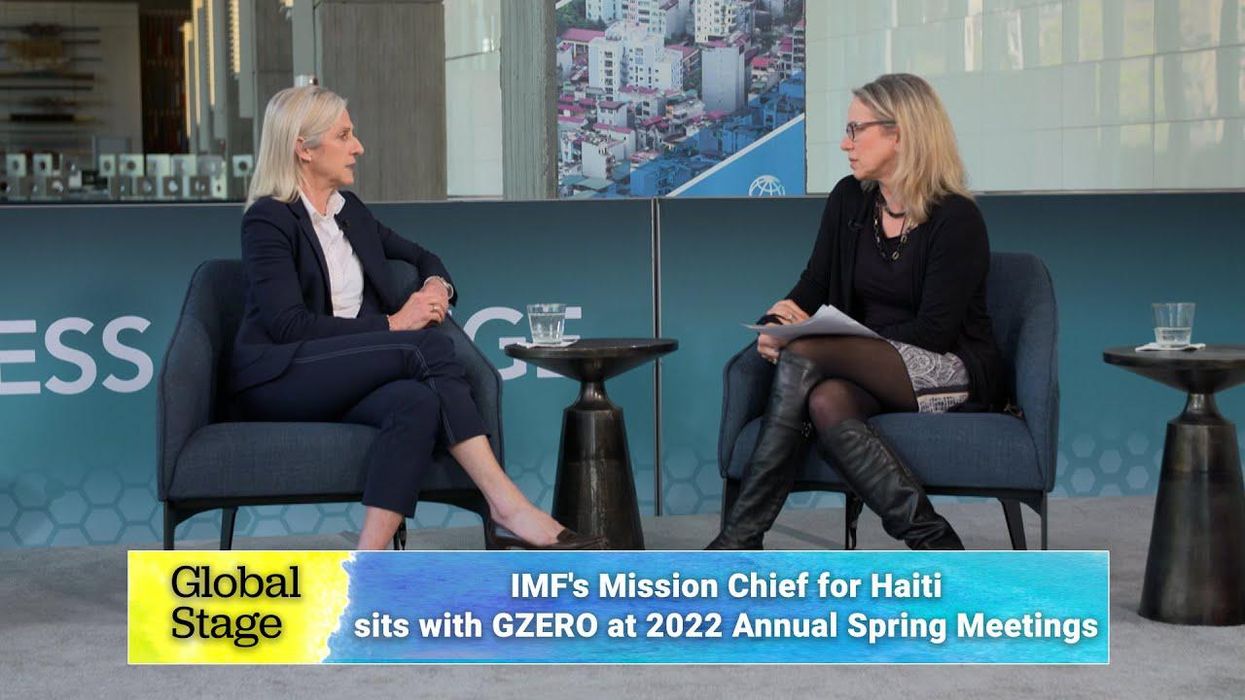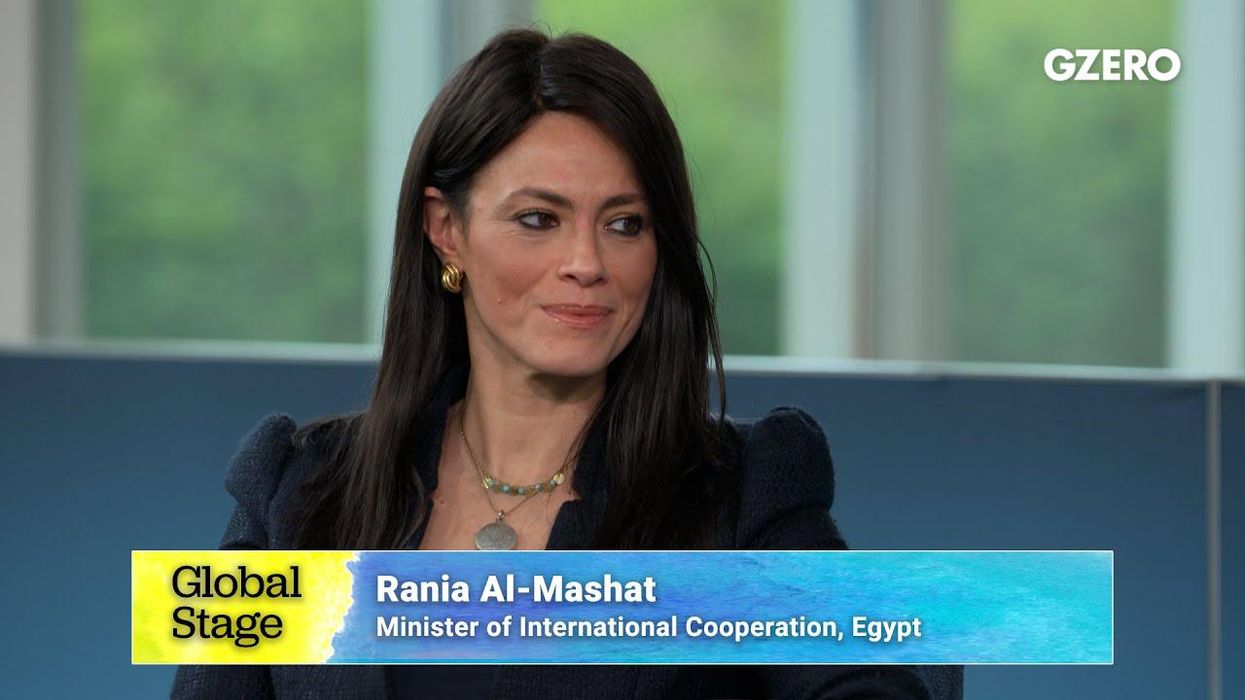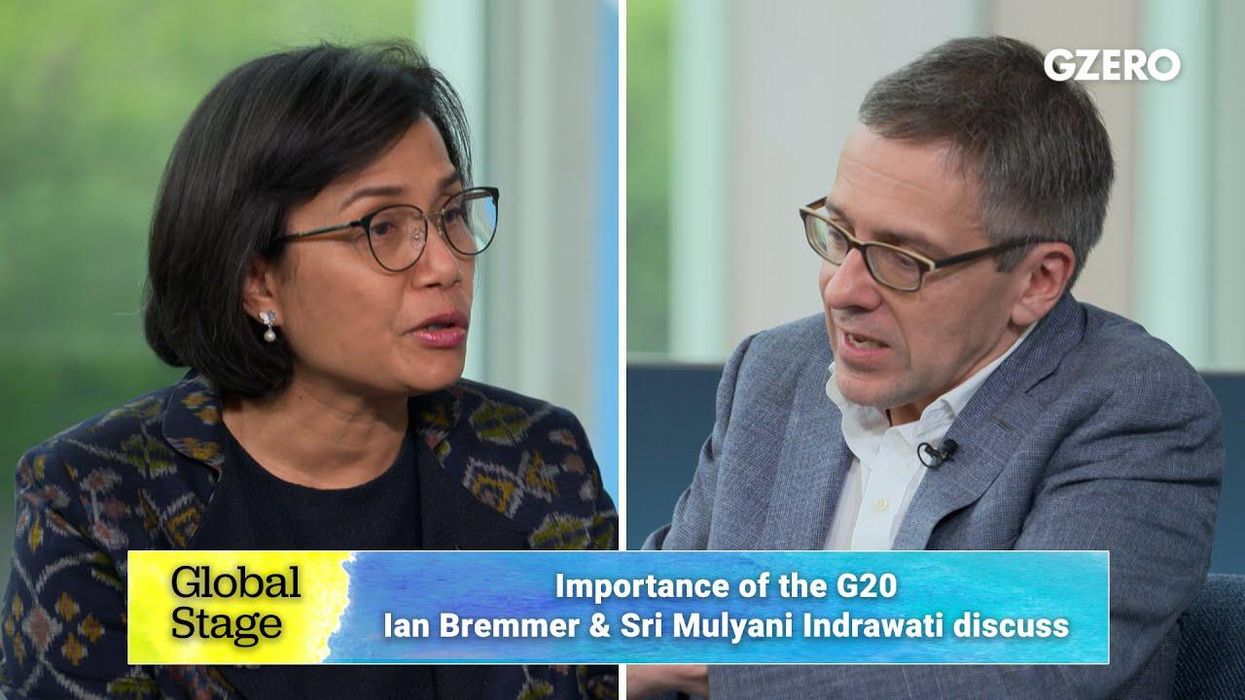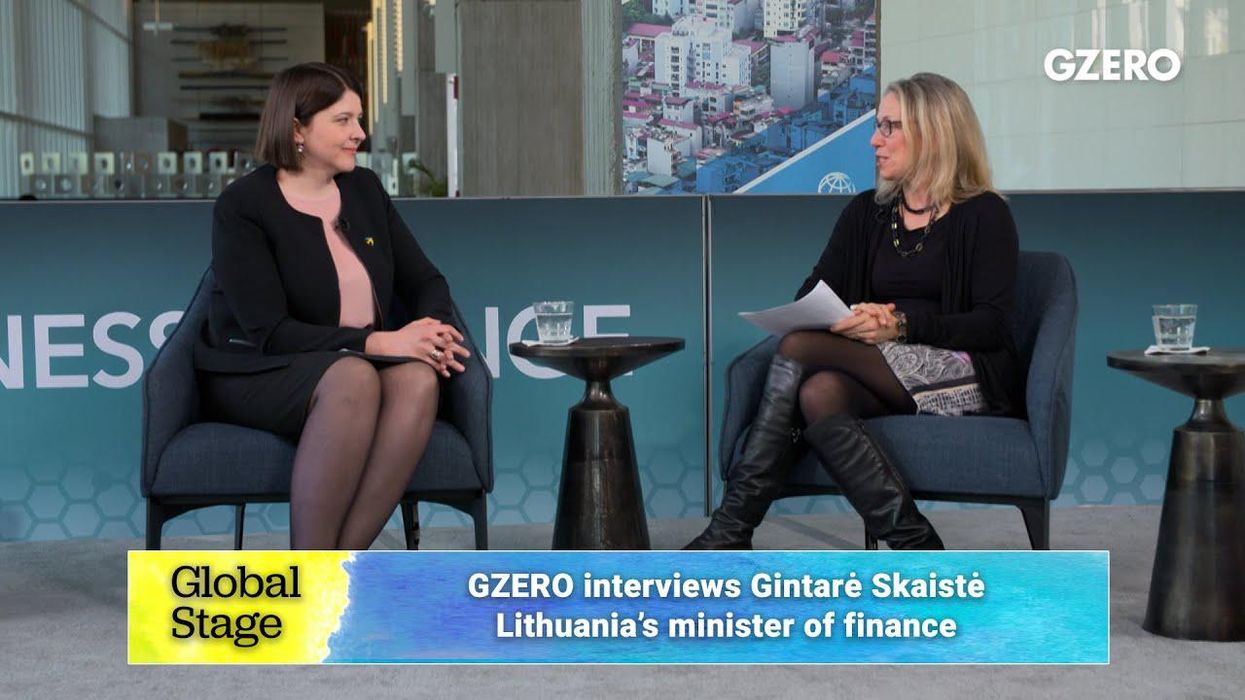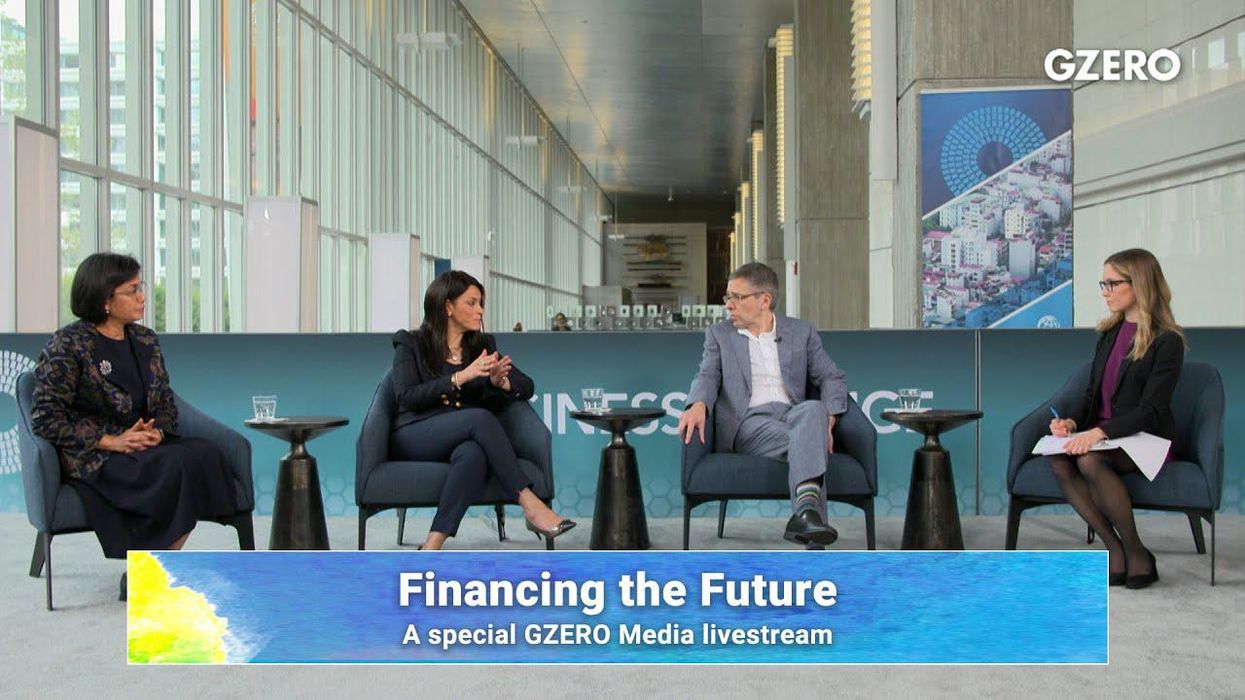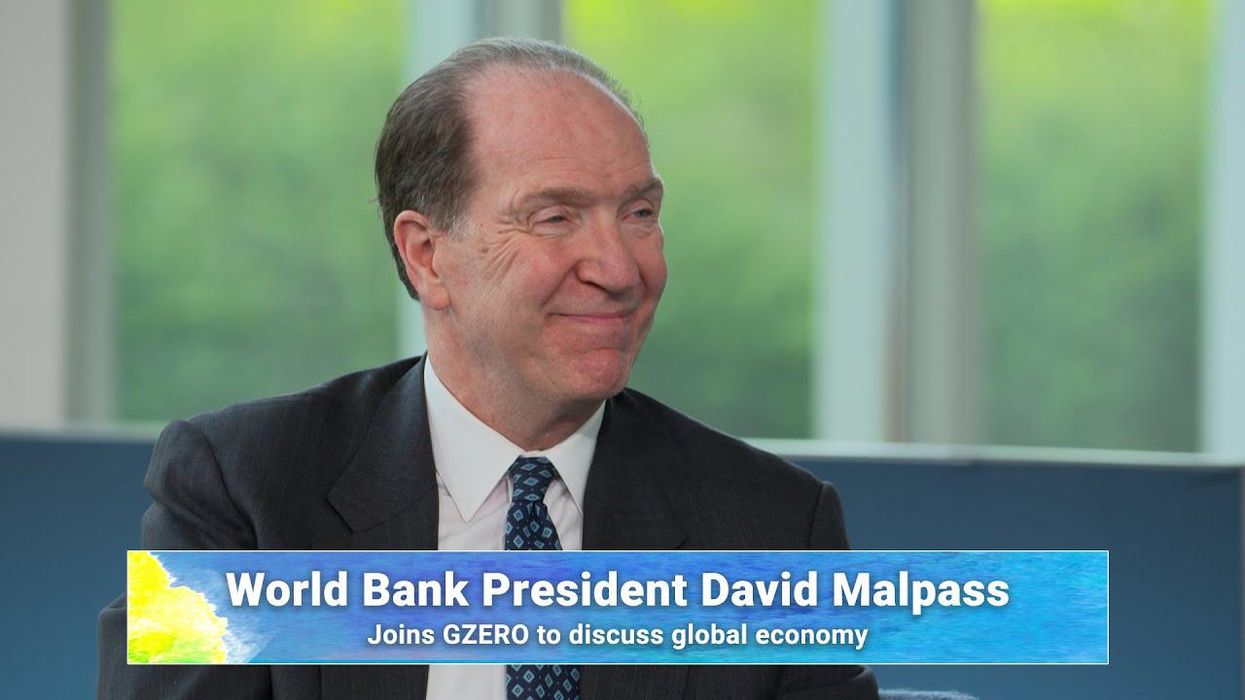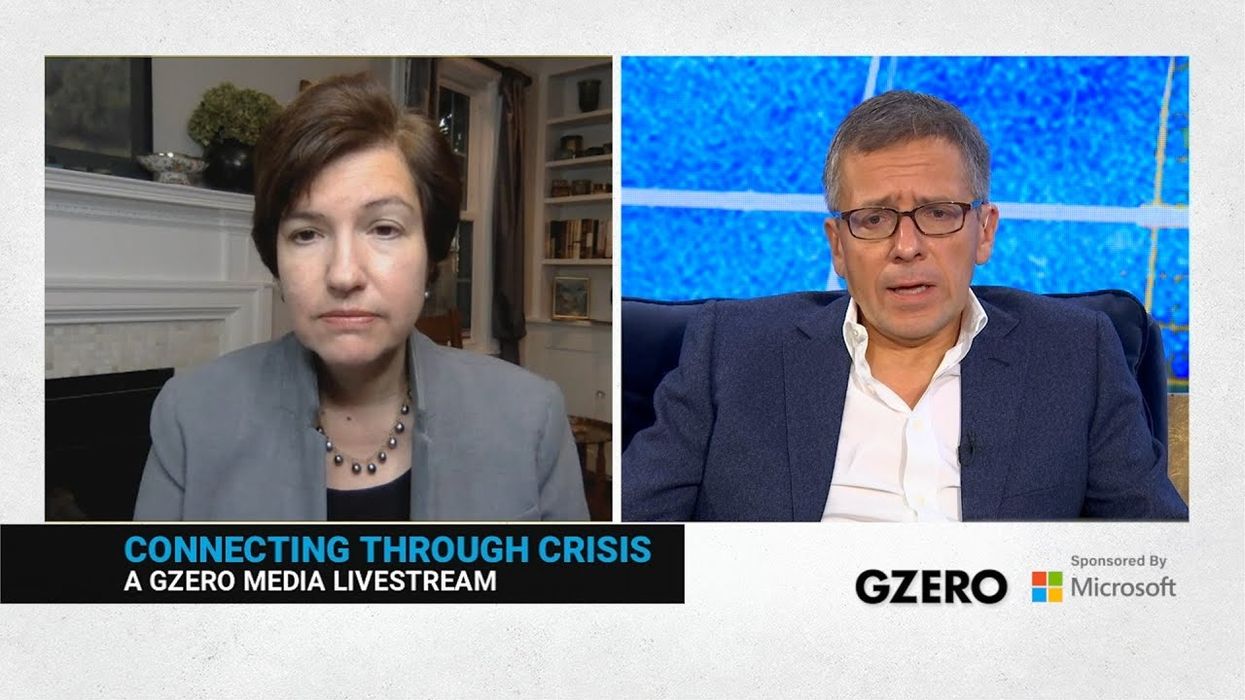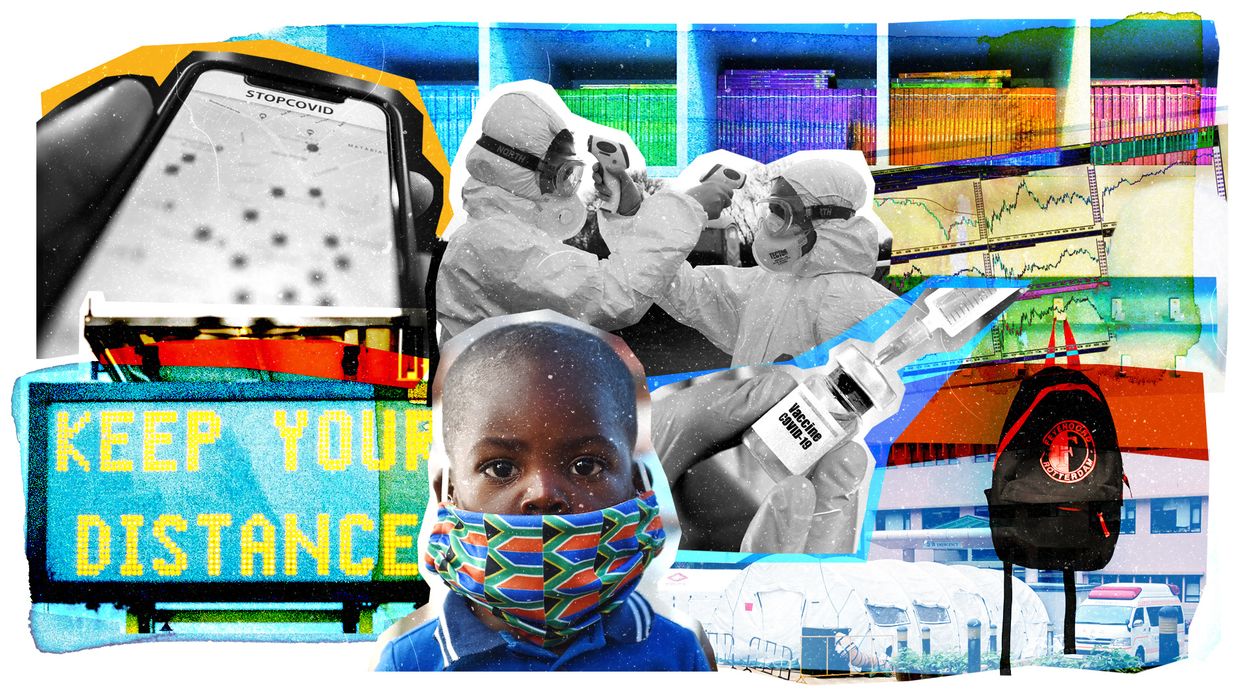VIDEOSGZERO World with Ian BremmerQuick TakePUPPET REGIMEIan ExplainsGZERO ReportsAsk IanGlobal Stage
Site Navigation
Search
Human content,
AI powered search.
Latest Stories
Sign up for GZERO Daily.
Get our latest updates and insights delivered to your inbox.
Global Stage: Live from Munich
WATCH RECORDING
Crisis Recovery
As the world faces one crisis after another, can we build a more inclusive, green, and resilient global system?
Presented by
The World Economic Forum in Davos, Switzerland, is not known for big outbursts of human emotion. But this year, the Ukrainian delegation got a standing ovation from the usual crowd of global business leaders. Gillian Tett, US editor-at-large and chair of the Financial Times board, met with the Ukrainians and shares her perspective with Ian Bremmer in a Global Stage interview. Beyond all the emotion, Tett also believes that when the fighting is over, there will eventually be business opportunities for many people present. She also commented on chatter about using sanctions against Russia to confiscate assets and use them to compensate Ukraine, which she sees as a slippery slope because there are many doubts about due process.
Ian Bremmer: Gillian Tett, last night, you were with the entire Ukrainian delegation, an emotional time for you. Tell me what you took away from that meeting.
Gillian Tett: Well, the first thing I took away was the fact that the Ukrainians are being exceptionally clever in terms of trying to rally support in the West by coming here. And it's quite remarkable that we had the mayors of a number of Ukrainian cities, a lot of the government figures. Many people in civil society coming all the way to Davos, to basically try and persuade the west that they need to rally support around them. And not just support them in terms of ending the war through sanctions and other measures and trying to get military support, but also very actively now, thinking about rebuilding and about the Marshall Plan.
Ian Bremmer: And I mean, Davos is not a place typically that you would expect to see a Ukrainian delegation rallying for support. They've gotten away with it because of the sheer brutality of the Russians, but also because of the trauma that is so evidently and abundantly being experienced by everyone in the delegation.
Gillian Tett: What I think was very clear is listening to the stories about the horrific events happening on the ground in Ukraine. Even as we speak, is injecting a level of emotion and shock into what's frankly normally often very dry and boring and wordy debates. And there's a huge amount of goodwill here. There's a huge recognition that what they're fighting for are values that Davos itself has often tried to reclaim or say that it espouses. There's also recognition that eventually there will be some kind of business opportunity in Ukraine for many people here, and they're looking about that as well. But in the short to medium term, the other issue of course, are questions of food security, the questions around sanctions, and how they're going to impact the global economy. And people are saying, "Yes, we absolutely support you, but there are also concerns we have."
Ian Bremmer: Now, on the sanctions piece, something the Financial Times is surely very interested in. I mean, we have an awful lot of assets that are being confiscated, and there's a lot of talk about taking those assets and helping to pay off the Ukrainians who have just been invaded by Russia. I've heard a lot of people criticizing that on the sidelines of this global group. What's your take?
Gillian Tett: I've heard lots of concern about that as well, not just from American financiers and lawyers who say, what about the due process element of all this? We want to have some kind of framework and due process. But also from the non-Western investors who have been investing in America or Europe in recent years are saying, "Well, hang on a sec, if due process is being overturned, what will it mean for us looking at America as an investment destination?" Now, the Ukrainians are aware of this and they've come up with a number of documents, which are trying to create some kind of framework and due process around this, which they've been passing around to people in recent days.
Gillian Tett: And it's going to be very interesting because there are a number of techniques and tools you can use that already exist under US law and in jurisdictions like France and Netherlands, which actually would allow you to do quite a lot of action right now. The question though is whether they're solid enough and whether the people in Davos will rally around any of the Ukrainian proposals around a due process.
Ian Bremmer: So, maybe, but what you're saying is we're not there yet?
Gillian Tett: Not there yet, and it's going to be very tough.
Keep reading...Show less
More from Crisis Recovery
Are markets becoming immune to disruptive geopolitics?
April 20, 2024
At the Paris Peace Forum, grassroots activists highlight urgent issues
November 10, 2023
Use AI and data to predict and prevent crises - Melinda Bohannon
October 12, 2023
"Access is a fundamental right" - Digital activist Vilas Dhar
October 11, 2023
The Global South is angry and mistrustful - Ian Bremmer
October 10, 2023
An early warning system from the UN to avert global disasters
October 04, 2023
AI plus existing technology: A recipe for tackling global crisis
September 30, 2023
The state of multilateralism: Shaky, fragile & stretched to capacity
September 27, 2023
Climate crisis can't be hijacked by global competitions: Justin Vaisse
September 23, 2023
How can the world build back better public health after COVID?
September 23, 2023
“Health is a human right”: How the world can make up progress lost to COVID
September 21, 2023
Eddie Ndopu: "People with disabilities need to be in leadership"
September 21, 2023
The world "is more coupled than we think"
April 13, 2023
We should not underestimate Putin, says NATO’s Benedetta Berti
February 19, 2023
Mongolia: the democracy between Russia and China
February 18, 2023
Ukraine dominates the dialogue in Munich
February 18, 2023
Is there a path ahead for peace in Ukraine?
February 17, 2023
Putin's tragic genius: war crimes & isolated Russia
January 24, 2023
Fighting crimes against humanity in a world of crisis
January 24, 2023
How to support youth seeking peace
January 02, 2023
Ian Bremmer: A political power vacuum is bad news for the world
December 28, 2022
2022 has been rough. Will 2023 be any better?
December 16, 2022
The perils of depending on food imports: UN Foundation chief
November 24, 2022
Focus on Africa: hunger, energy, climate - and the path to growth
October 14, 2022
Is the world on the brink of another global recession?
October 13, 2022
UN Environment Chief: “The truth is we are failing”
October 02, 2022
Ian Bremmer: Russia is a rogue state
September 30, 2022
Future-proofing the internet from radicalization & extremist content
September 30, 2022
Finland “investing in security and stability” with NATO push
September 27, 2022
Why is Russia on the UN Security Council?
September 23, 2022
Who can solve the world's "emergency of global proportions"?
September 22, 2022
Microsoft president Brad Smith has a plan to meet the UN's goals
September 21, 2022
Post-COVID burnout for students is real, says US teachers union exec
September 16, 2022
How to get students back on track after the Great Education Disruption
September 16, 2022
Haiti stuck in a "vicious circle," says IMF economist
April 27, 2022
Egypt wants COP27 to be all about implementation
April 23, 2022
What happens if Russia attends the 2022 G20 Bali summit?
April 22, 2022
Unpacking Lithuania's energy independence strategy
April 22, 2022
Is global economic inequality getting worse?
April 22, 2022
Americans “are going to get angrier”: Ian Bremmer on US pandemic response
September 25, 2020
Crisis response and recovery: Reimagining while rebuilding
September 13, 2020
GZERO Series
GZERO Daily: our free newsletter about global politics
Keep up with what’s going on around the world - and why it matters.
